14th -22nd May 2025
FOR ME, TO LIVE IS CHRIST
Led by Fr Matt Blake, OCD and Fr Kelvin Ekhoegbe, OCD
A pilgrimage through the Land of the Pauline Gospel in the company of St Paul, the great apostle of the Gentiles, travelling to many of the places where he lived and preached the Gospel of Jesus Christ.
Our deepest hope is that we can catch a glimpse of the divine encounter that turned him around from Saul to Paul, an experience that burned in his heart and about which he cried out, “it is no longer I who live, but Christ who lives in me, the life I now live in the flesh, I live by faith in the Son of God who loves and gave himself for me” (Gal 2:20-21).
DAY ONE
Following the Footsteps of Saint Paul in Thessaloniki
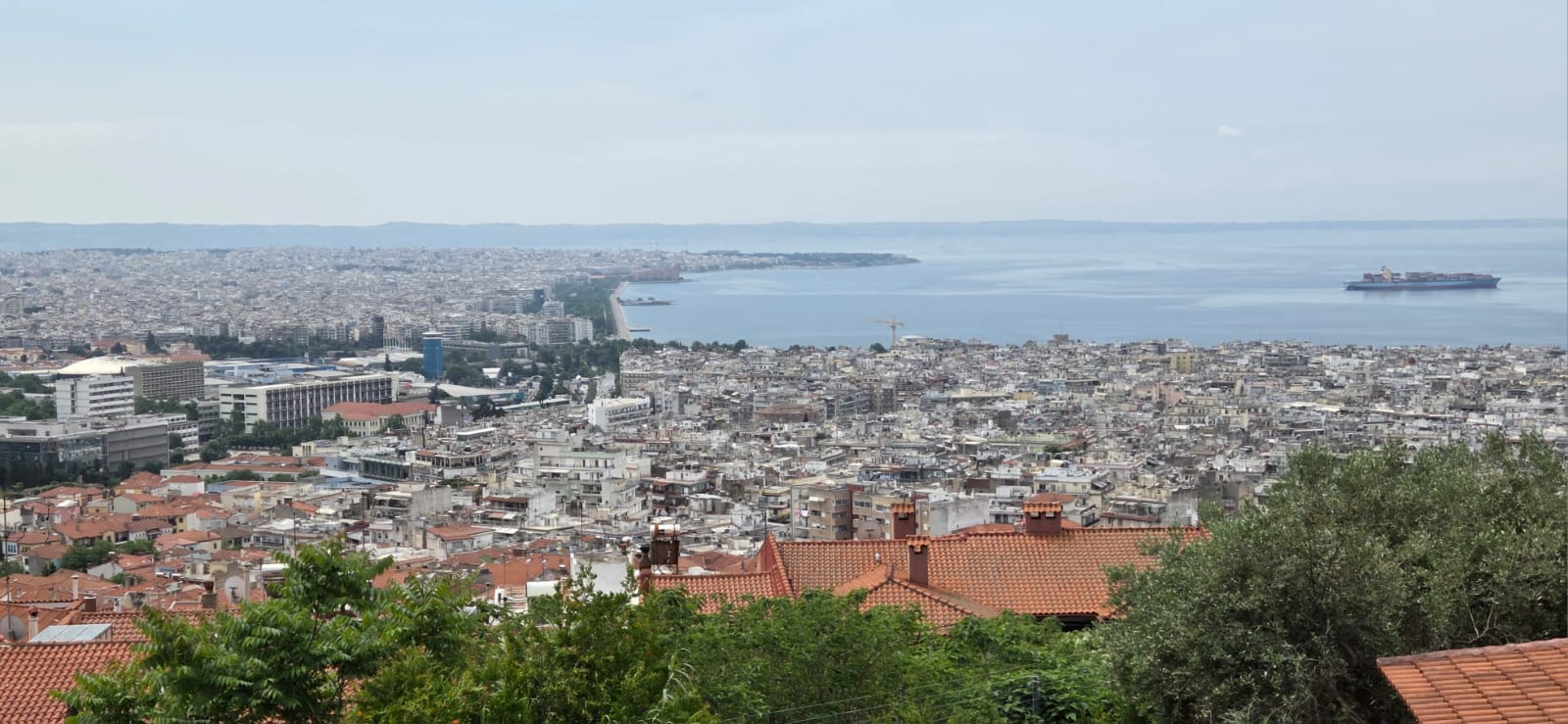
Thessaloniki, named after the half-sister of Alexander the Great, has long been a crossroads of cultures, standing at the gateway between East and West. It’s a fitting place to begin our journey, as it echoes the blend of cultures and ideas that shaped Paul’s missionary work.
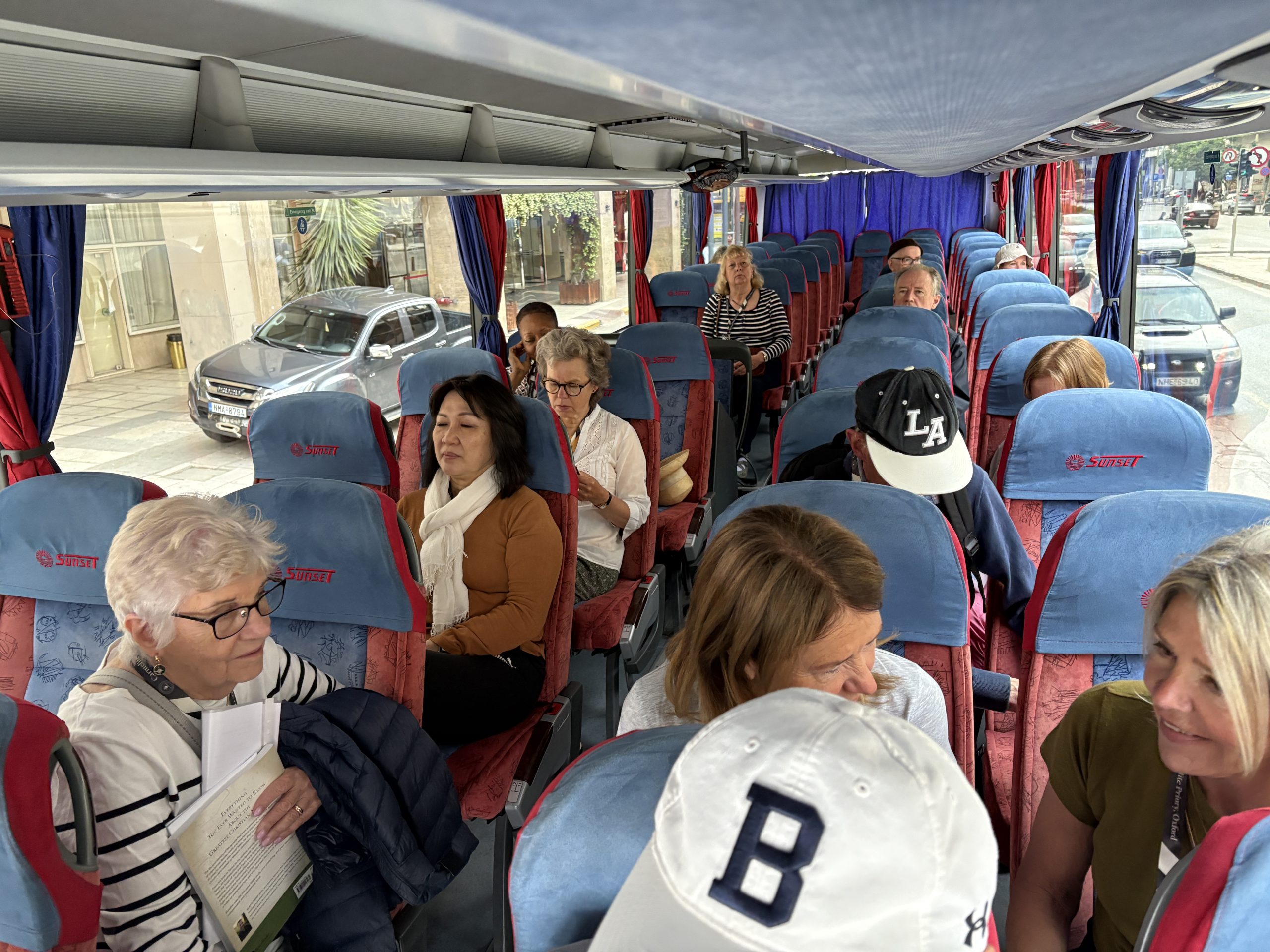
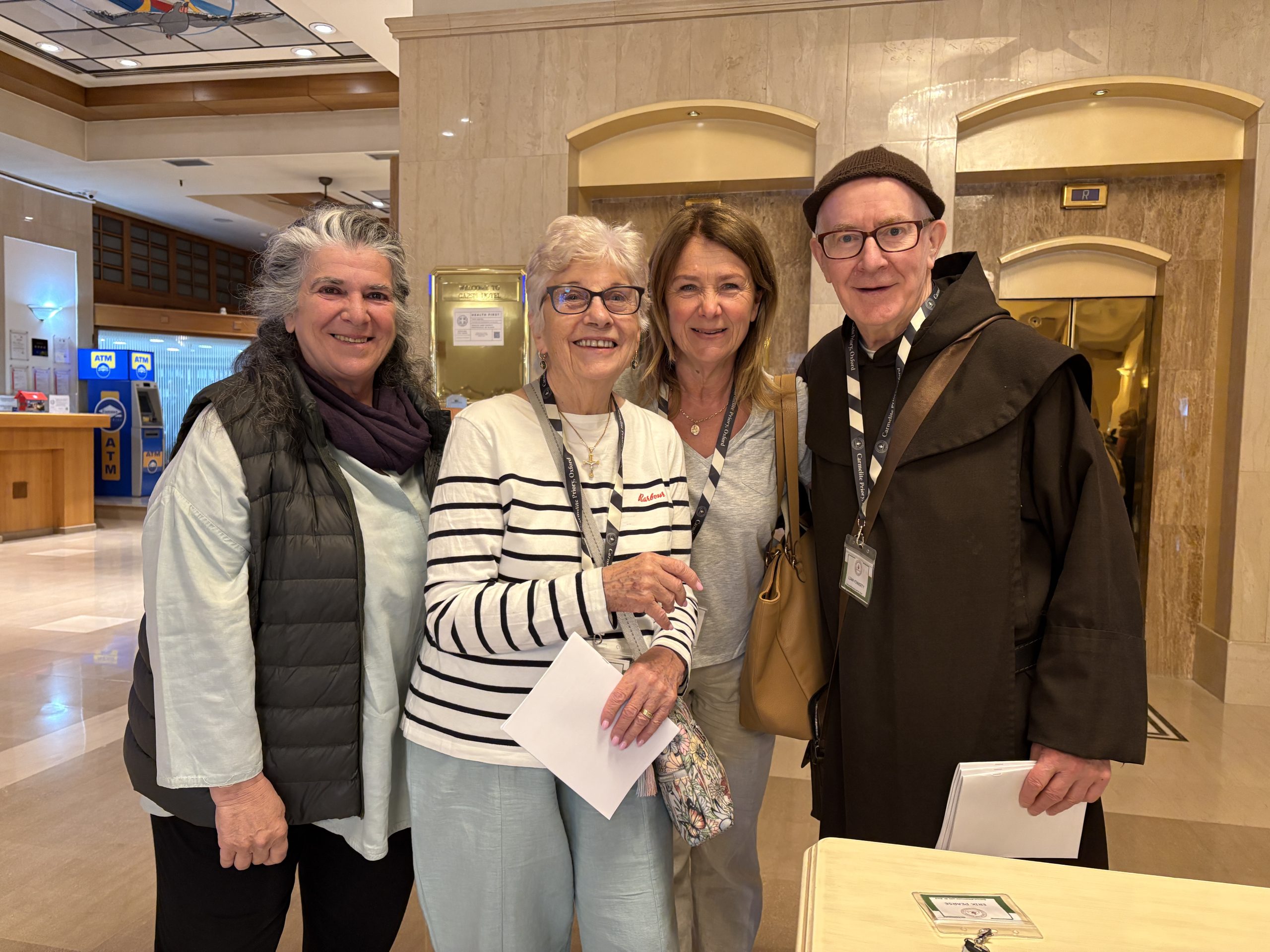
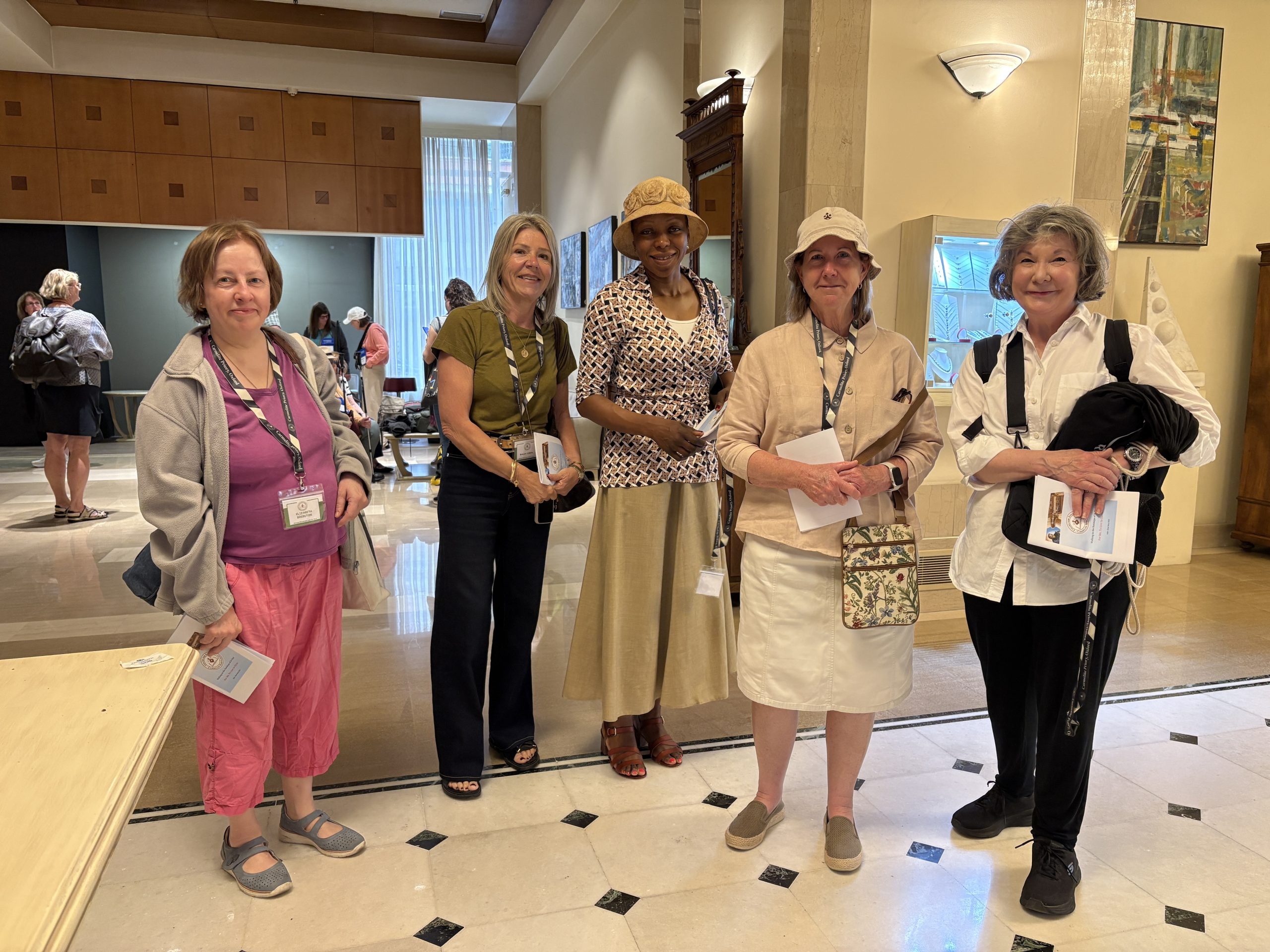
Our first stop was the Cathedral, where we celebrated Mass. Father Matthew Blake gave a moving homily, reflecting on Paul’s transformative mission to Thessaloniki. He spoke about how Paul, a former Pharisee deeply rooted in Jewish law, came to see Christ as the complete fulfilment of that law. Though we don’t have a record of Paul’s exact words in this city, Father Blake imagined that his message must have been a radical and deeply challenging proclamation of the risen Christ. Father Blake also reminded us that with this first Eucharist of our pilgrimage, we have formed into a community, much like the early Christians. He expressed the hope that this journey would not only deepen our knowledge of Christ but transform us through a personal encounter with Him.
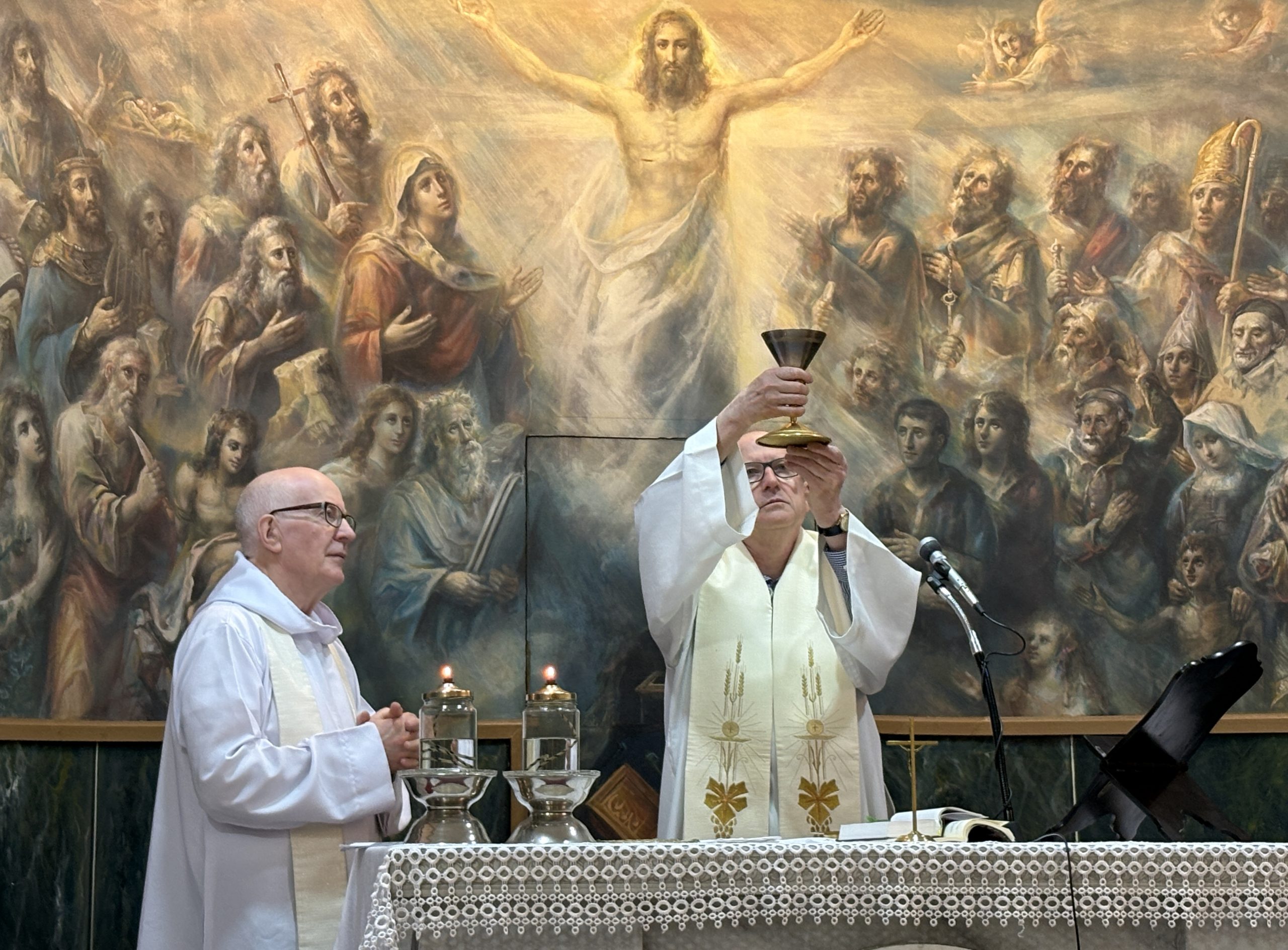
Following the Mass, Father Blake gave us a separate talk about the life and mission of Saint Paul, drawing from the Acts of the Apostles and 1 Thessalonians. He reminded us that Paul’s letters are some of the earliest Christian writings, predating even the Gospels. These letters capture the raw, unfiltered spirit of the early Church and offer a glimpse into the challenges and triumphs of those first believers. Father Blake emphasised that Paul’s writings are filled with thanksgiving, a powerful reminder to us to be grateful for the courage and faith of those early Christians, whose witness laid the foundation for our own faith today.
Afterwards, we reboarded our coach for a panoramic tour of the city. As we drove along the Aegean coast, our guide pointed out key landmarks, including Aristotle Square, the bustling heart of modern Thessaloniki, and the iconic White Tower, a symbol of the city’s resilience. We learned about the origins of the city’s name, its connection to the Macedonian empire, and its patron saint, Demetrius, a revered martyr who remains a powerful symbol of faith and courage.
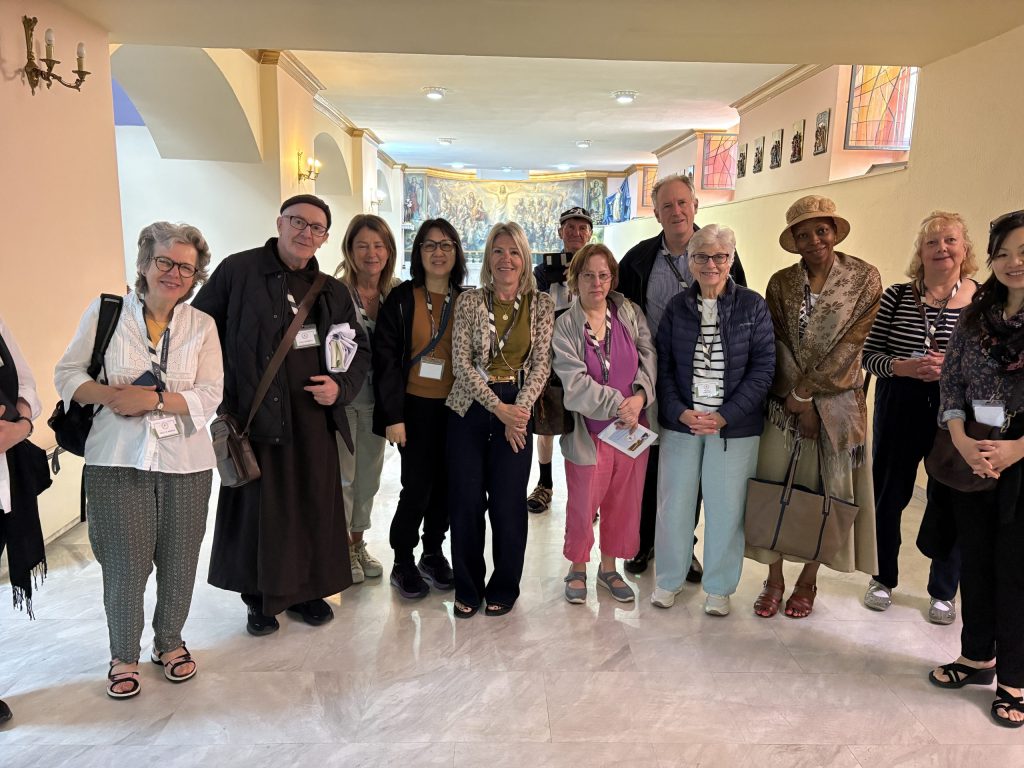
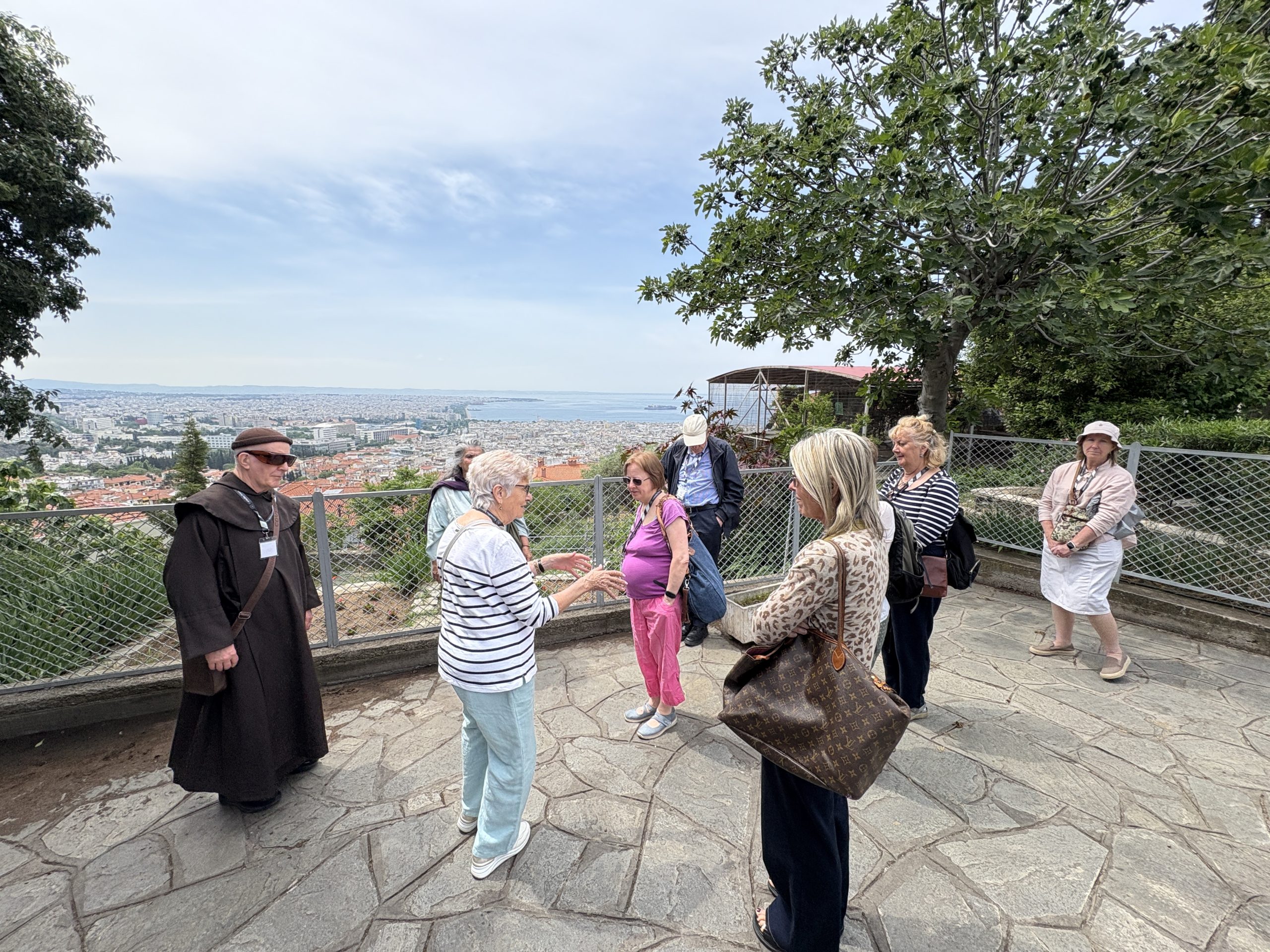
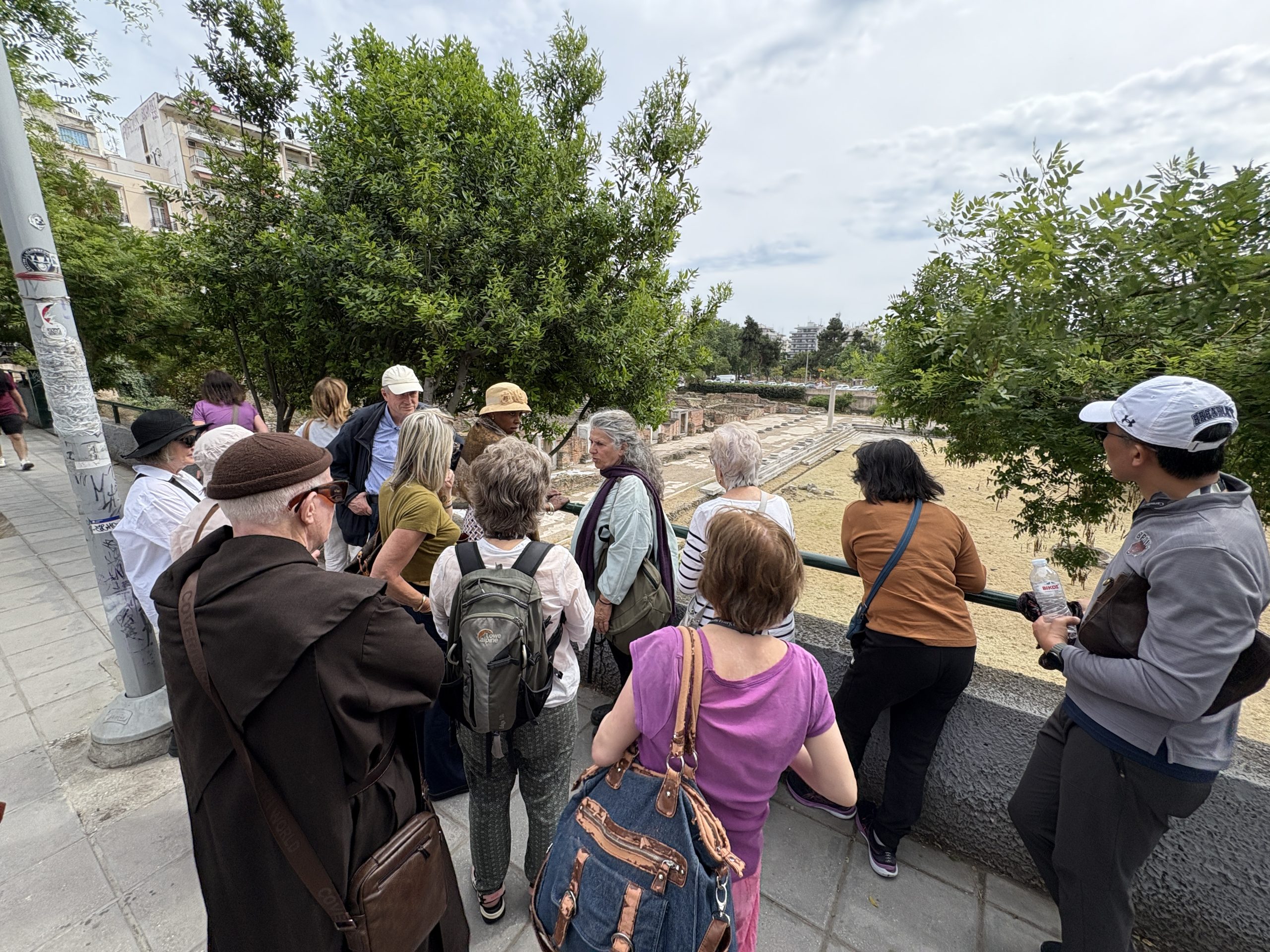

We then made our way to the upper part of the city, known as Ano Poli, passing two cemeteries before visiting a monastery believed to be a site where Saint Paul may have preached. Some even speculate that this could be the location of Jason’s house, where Paul is thought to have stayed during his time in the city. Later, we stopped at a spring, another site traditionally associated with Paul’s preaching.
We returned to the city centre for lunch before continuing our journey through Thessaloniki’s Christian heritage. We visited the Basilica of Saint Demetrius, dedicated to the city’s patron saint, who was martyred for his faith in the 4th century. We also viewed the ancient Roman forum, a reminder of the city’s deep historical roots, and paused at the White Tower once more, reflecting on the story of a Jewish prisoner who saved his life by volunteering to clean the tower during the Ottoman period.
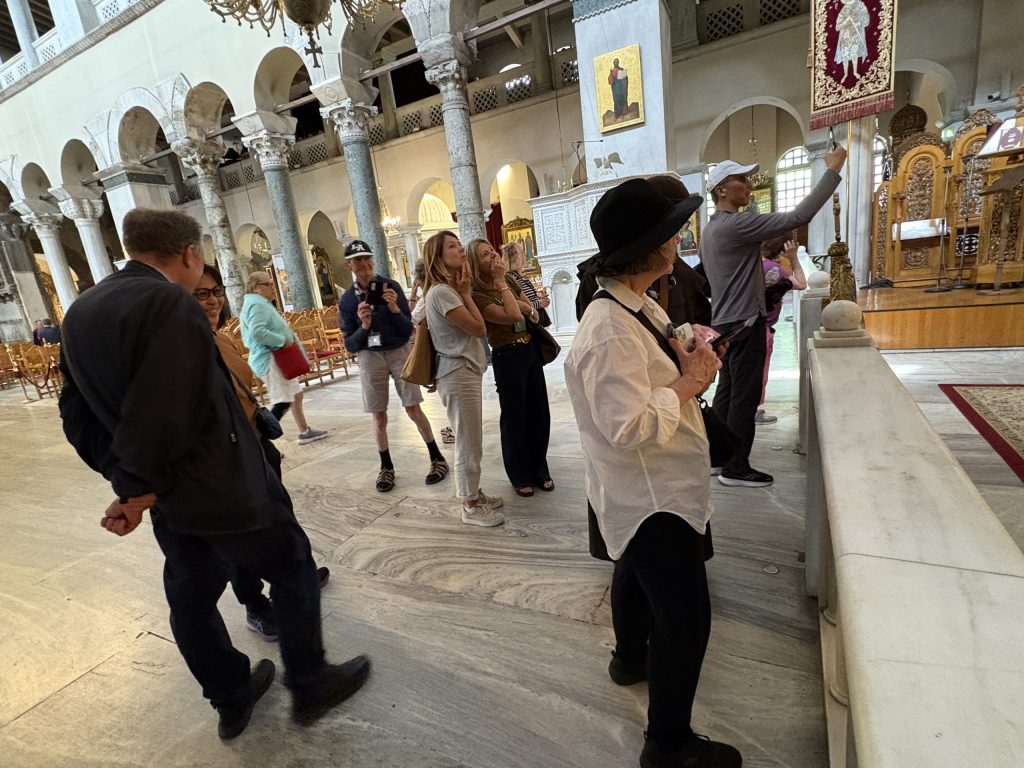
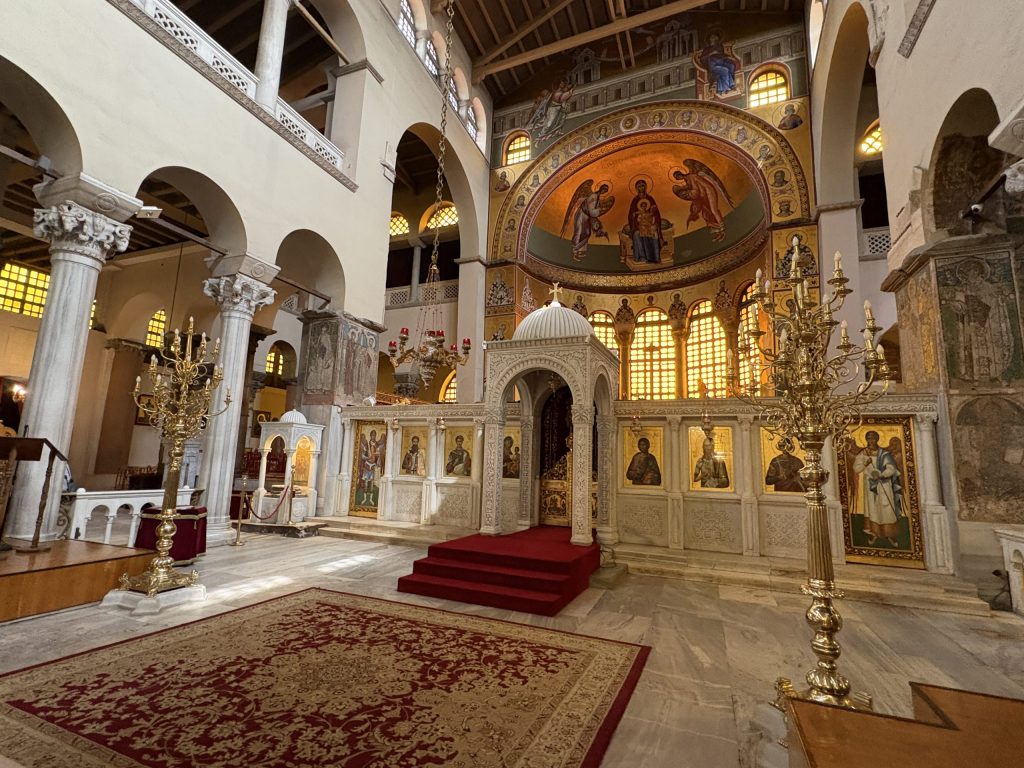
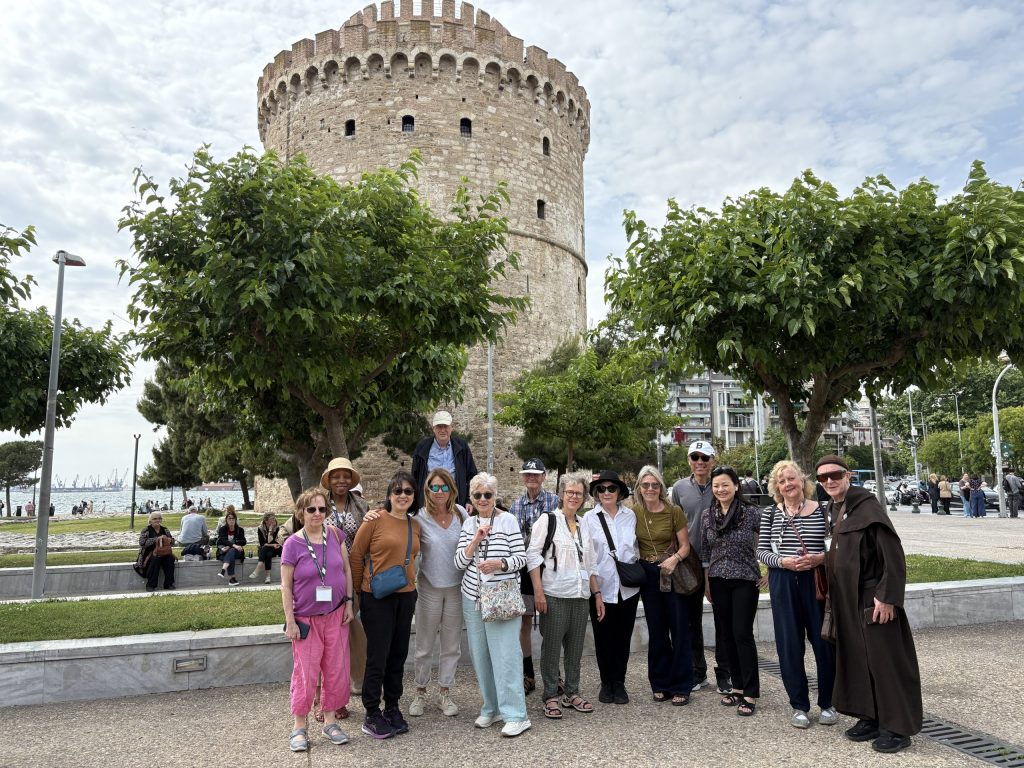
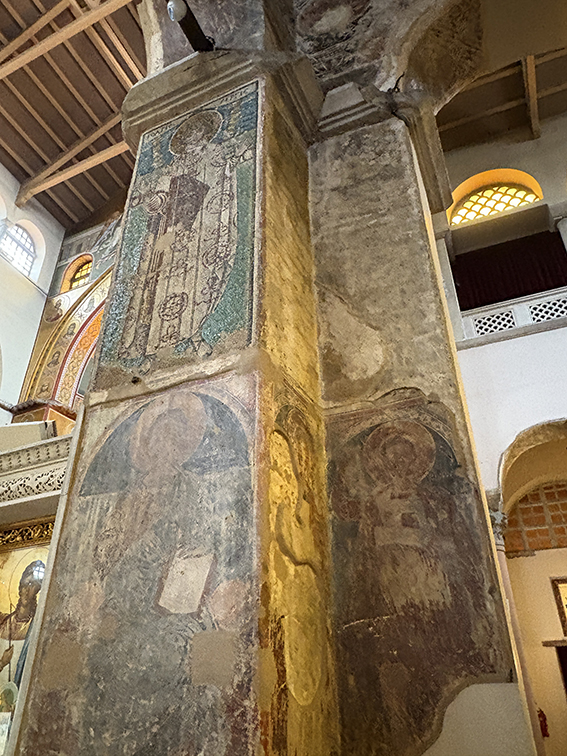
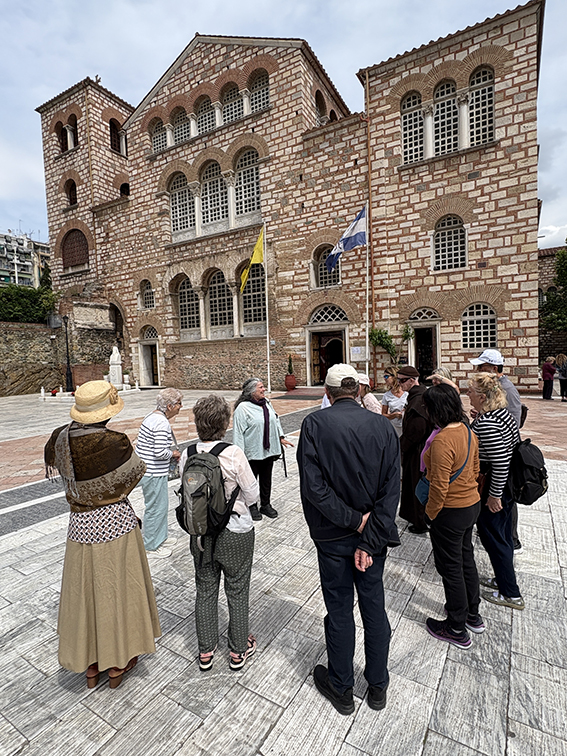
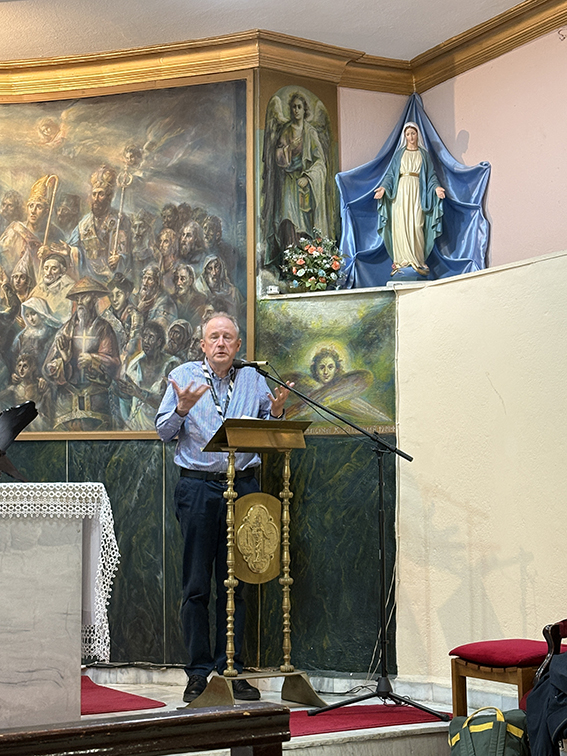
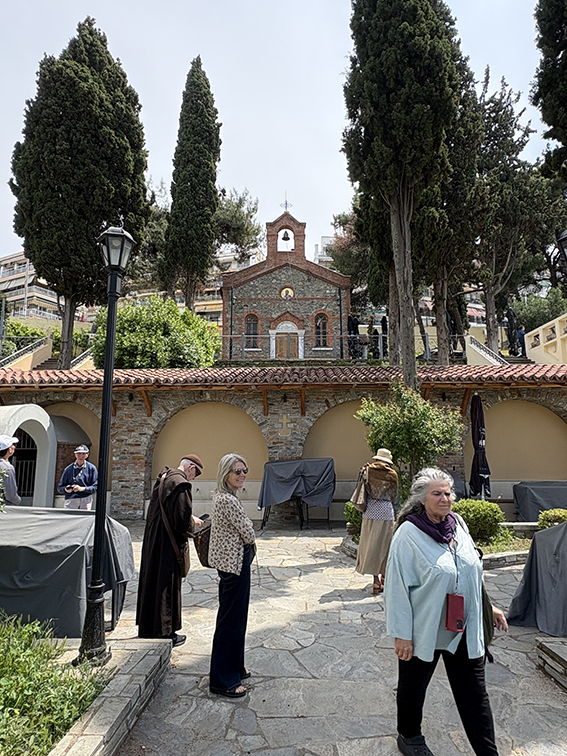
Our final stop of the day was the bronze statue of Alexander the Great on horseback, a fitting symbol of the city’s proud Macedonian heritage.
We returned to our hotel in the evening, grateful for the rich experiences of this first day, and gathered for dinner to share our reflections and look forward to the days ahead.
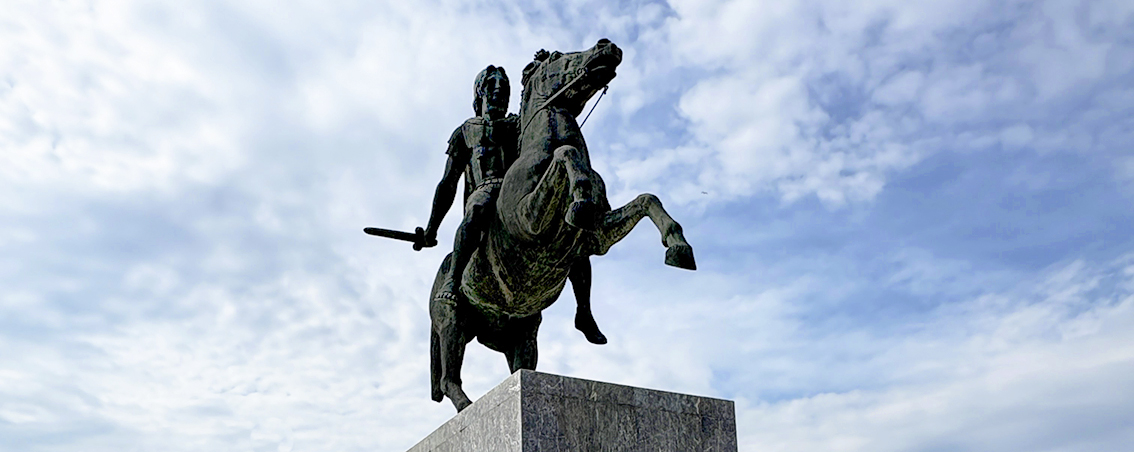
DAY TWO
Today, our pilgrimage took us from Thessaloniki to Philippi and Kavala, retracing the path of Saint Paul as he brought the Gospel to Europe for the first time. It was a deeply moving day, filled with powerful reminders of faith, resilience, and the transformative power of the early Church.
We began with an early start, gathering on the bus for Morning Praise as the sun rose over the Aegean coast. The rhythmic hum of the road beneath us was a fitting backdrop as Father Matthew Blake shared a reflection on Acts 16. He spoke about Lydia, the first recorded European convert to Christianity, and the unjust treatment that Paul and Silas faced in Philippi. Despite being beaten and thrown into prison, Paul and Silas continued to pray and sing hymns, their faith unshaken.
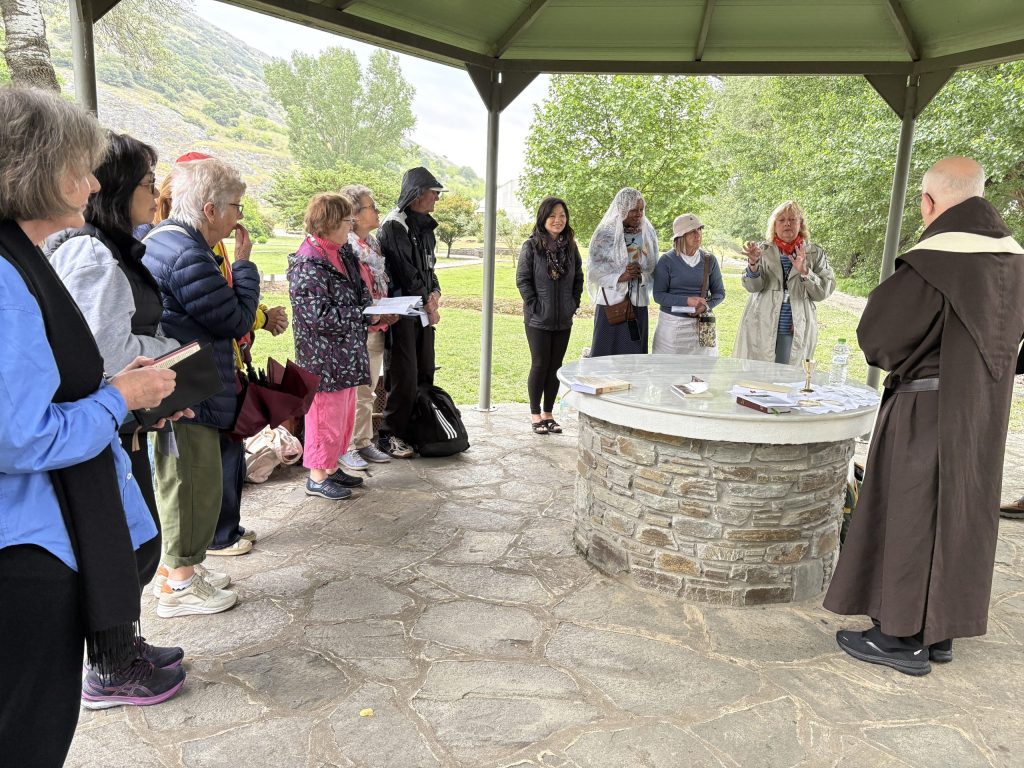
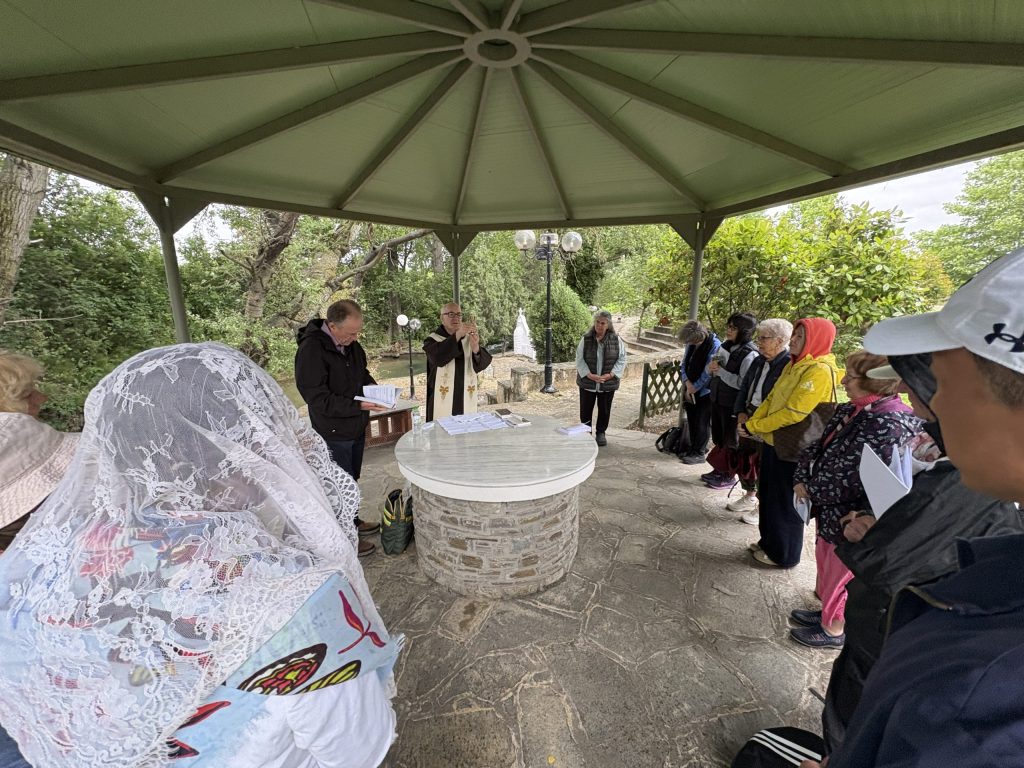
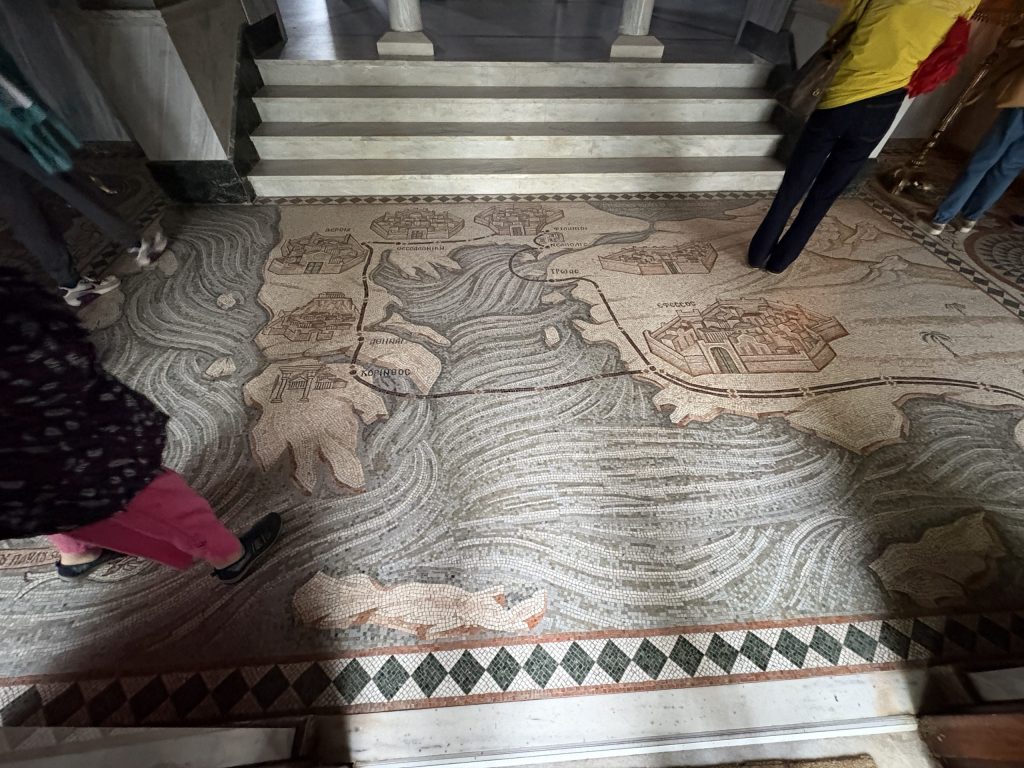
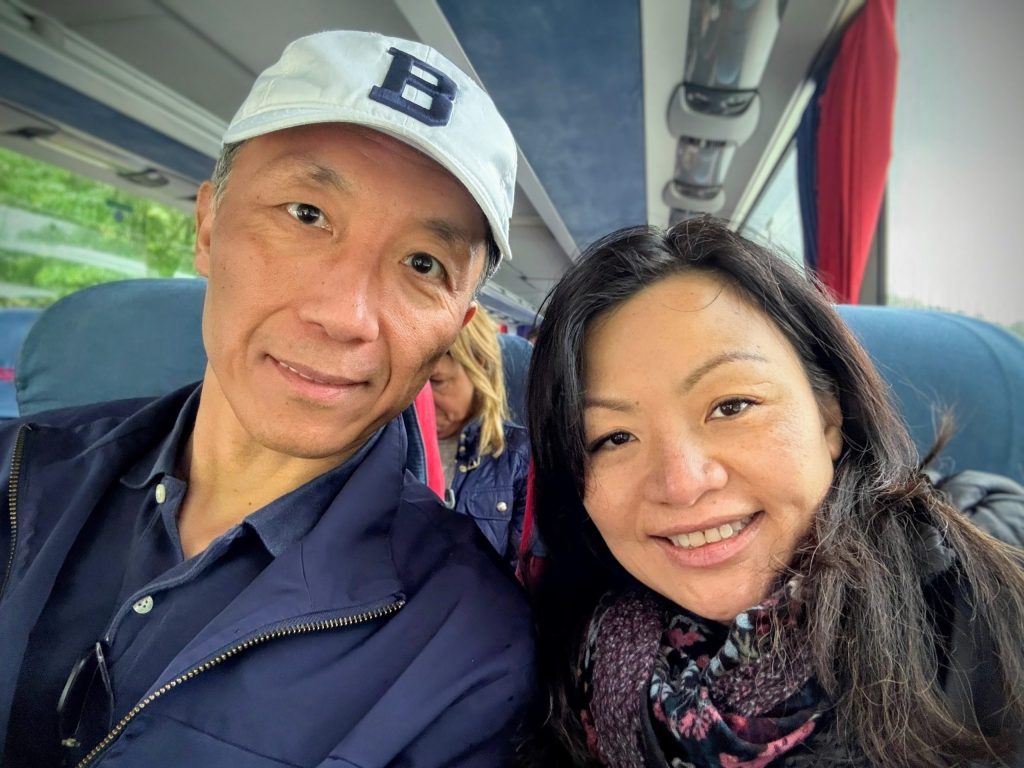
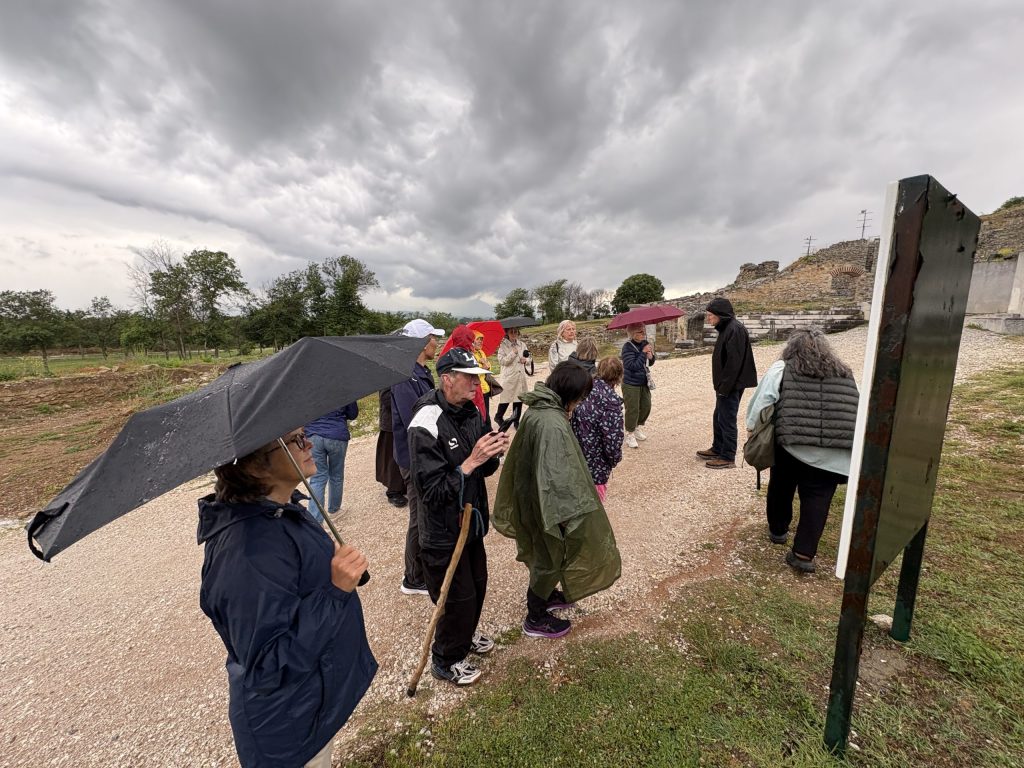
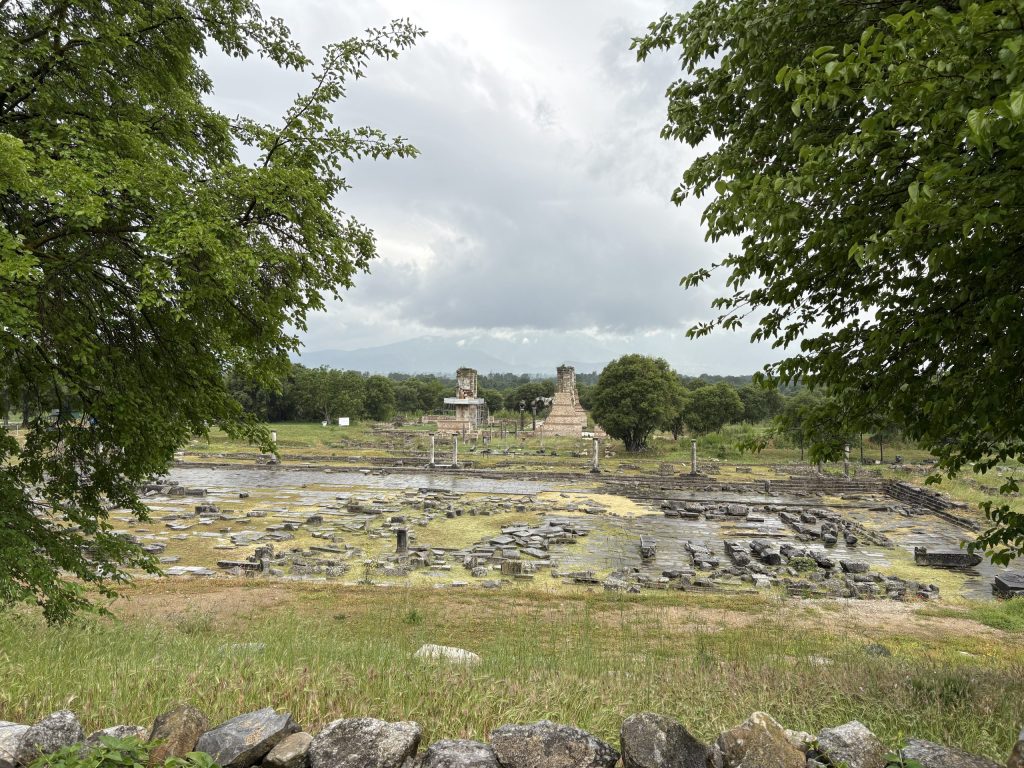
Our first stop was a church dedicated to Lydia by a river near Philippi. This was a tranquil, tree-lined stream traditionally believed to be the site where Lydia and her household were baptised by Paul. Despite the rain and wind, Father Liam celebrated Mass here, his voice carrying over the sound of the rushing water, a poignant reminder of the simplicity and courage of those early conversions. As we stood by the creek, we reflected on the profound faith of Lydia, a woman whose simple “yes” to God helped lay the foundation for the Church in Europe.
After Mass, we visited the nearby Lydia Baptistery, a serene, domed church built to commemorate this significant moment in Christian history. Its quiet, prayerful atmosphere provided a moment of reflection as we considered the enduring power of faith across the centuries.
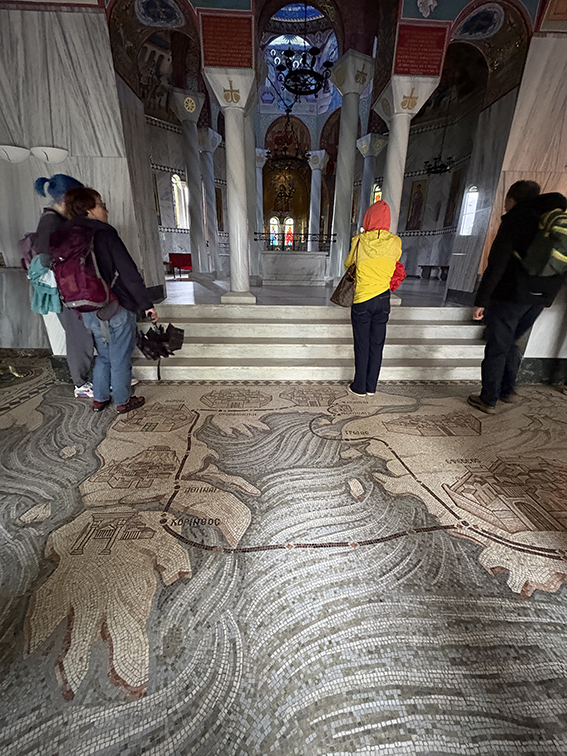
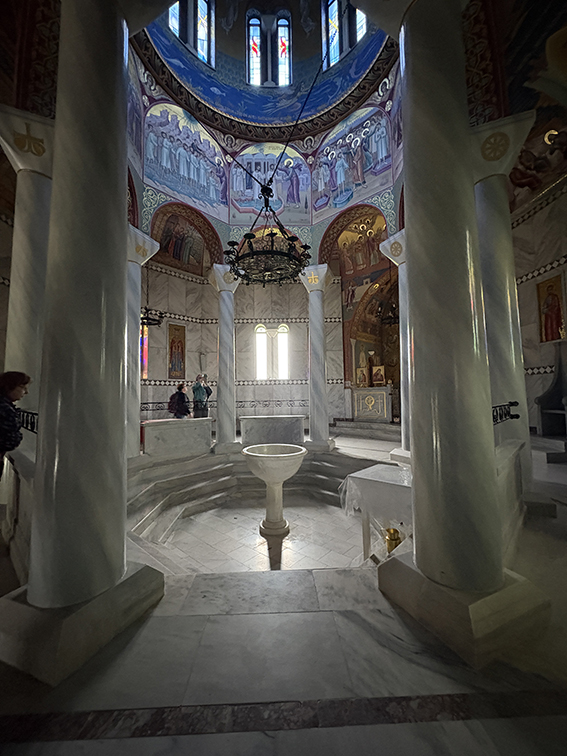
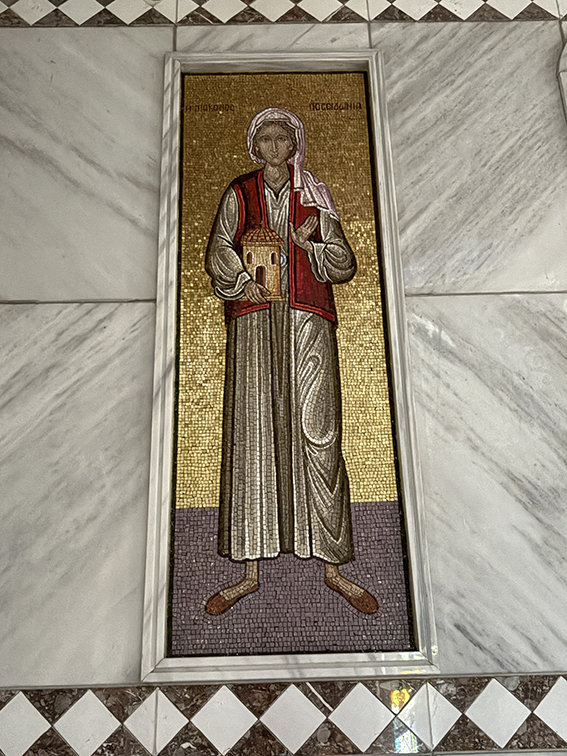
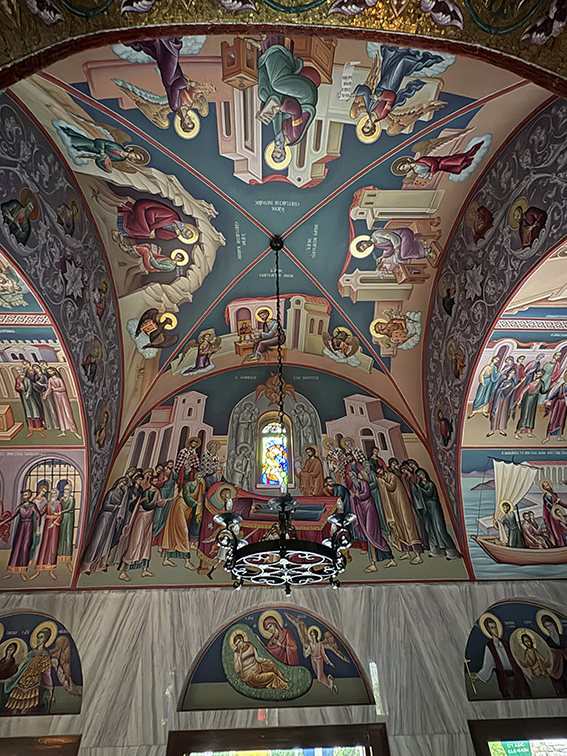
Next, we made our way to the ancient ruins of Philippi, a place where the voices of philosophers, merchants, and early Christians once mingled in the open air. We walked along the Via Egnatia, the same Roman road that Paul would have travelled, its stones worn smooth by centuries of footsteps. We paused at the site traditionally believed to be Paul’s prison—a sobering reminder of the sacrifices made by the early apostles to spread the Gospel.
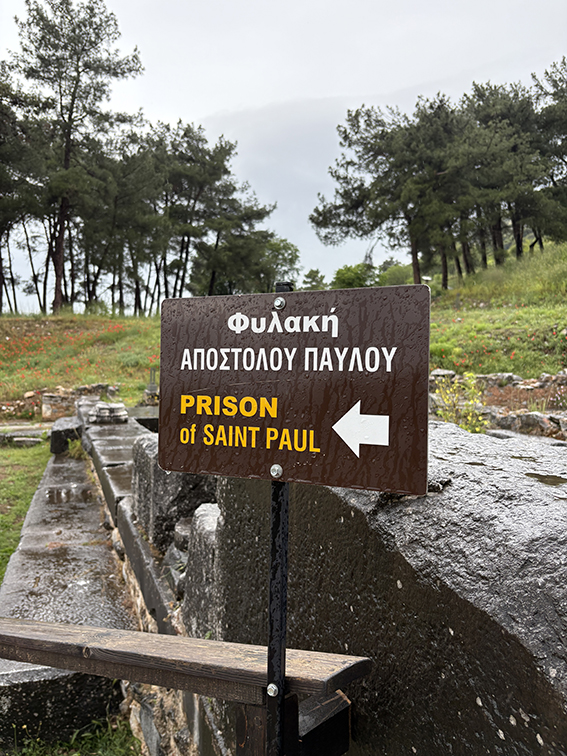
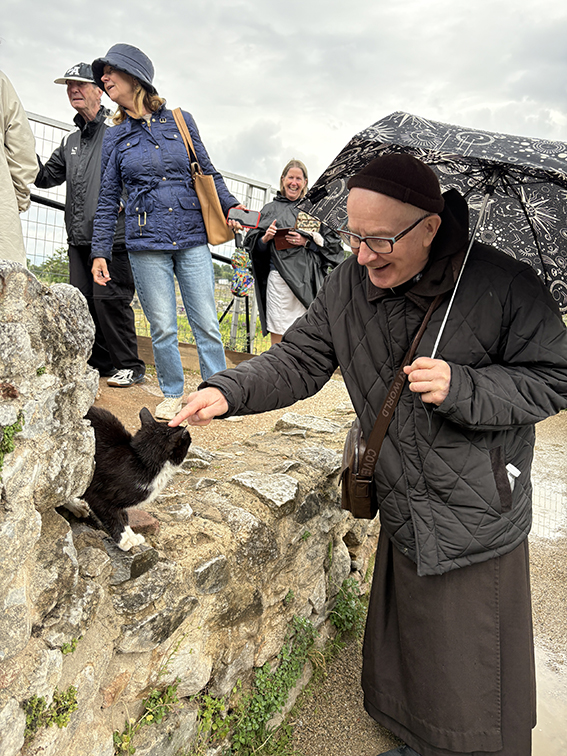
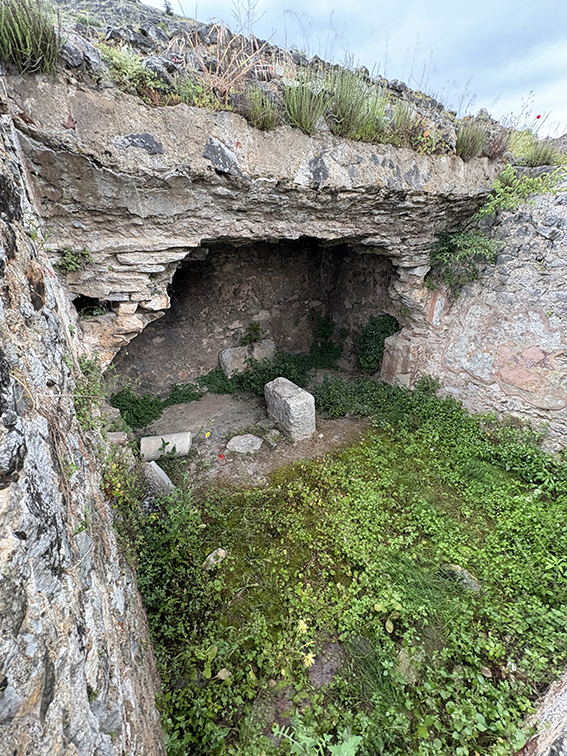
We also visited a unique octagonal church with a small mosaic on the floor bearing Paul’s name—a tangible connection to the Apostle’s enduring legacy in this region. It was a powerful moment, standing among these ancient stones, contemplating the courage it must have taken for Paul and his companions to preach the Gospel in this bustling Roman colony, often at great personal risk.
From Philippi, we continued to Kavala, known in Paul’s time as Neapolis, the port where he first set foot on European soil. We were dropped off at the picturesque waterfront for lunch, with some of our group taking the opportunity to visit the impressive Kamares aqueduct, a striking remnant of the city’s rich history.
As the afternoon sun dipped lower in the sky, we boarded the bus once more for the journey back to Thessaloniki. Tired but spiritually refreshed, we reflected on the powerful reminders of faith, courage, and the transformative power of the Gospel that we had encountered throughout the day.
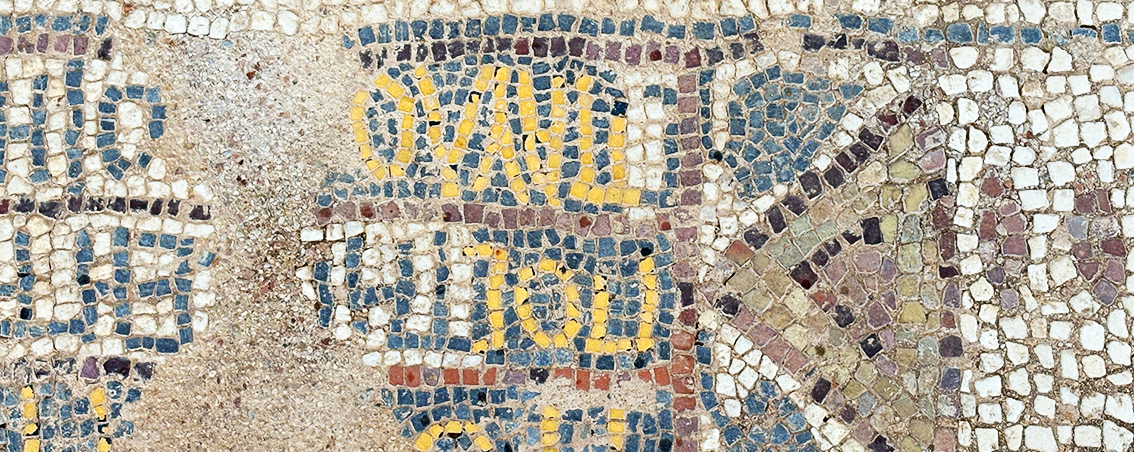
DAY THREE
Following the Steps of Saint Paul in Veria (Berea)
Today, our pilgrimage continued to the small, historic city of Veria (Berea), where Saint Paul once preached the Gospel with great courage and conviction. The morning began with praise and prayer on the bus, setting the tone for a day of reflection and spiritual connection.
As we traveled through the Macedonian countryside, Father Matthew Blake shared a powerful teaching based on the Book of Acts and the second chapter of Philippians. He spoke about the Bereans, who were known for their noble character and their eagerness to examine the Scriptures daily to see if what Paul said was true. In Acts 17:11, the Bereans are praised for their open-mindedness and spiritual discernment, a model of faith and intellectual curiosity that has inspired Christians for centuries.
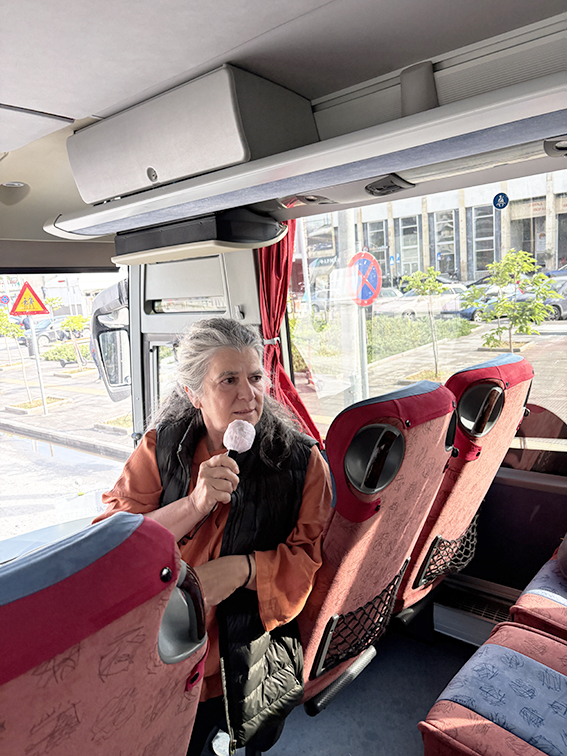
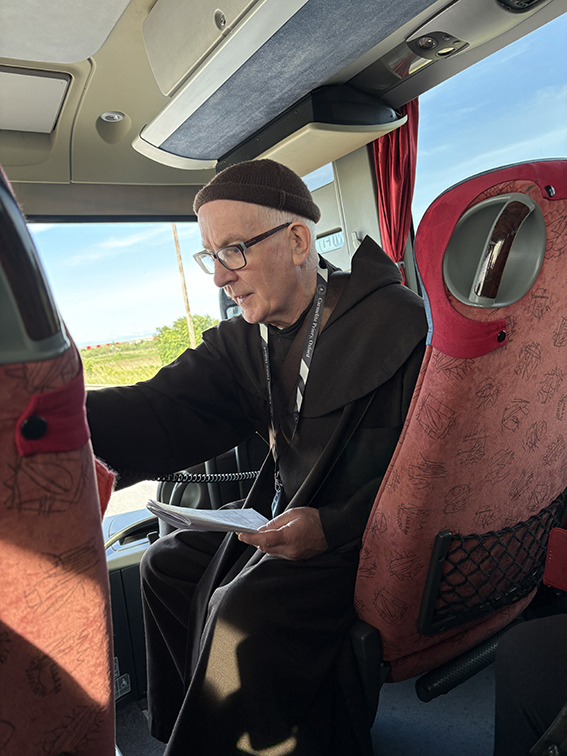
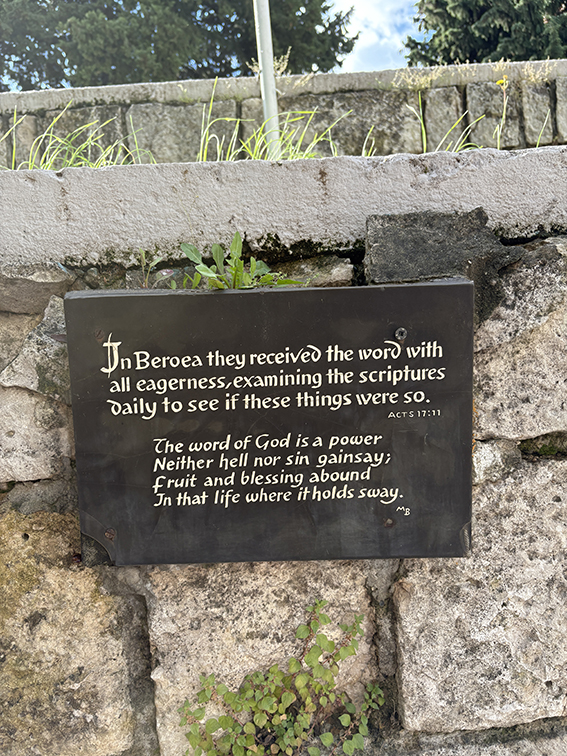
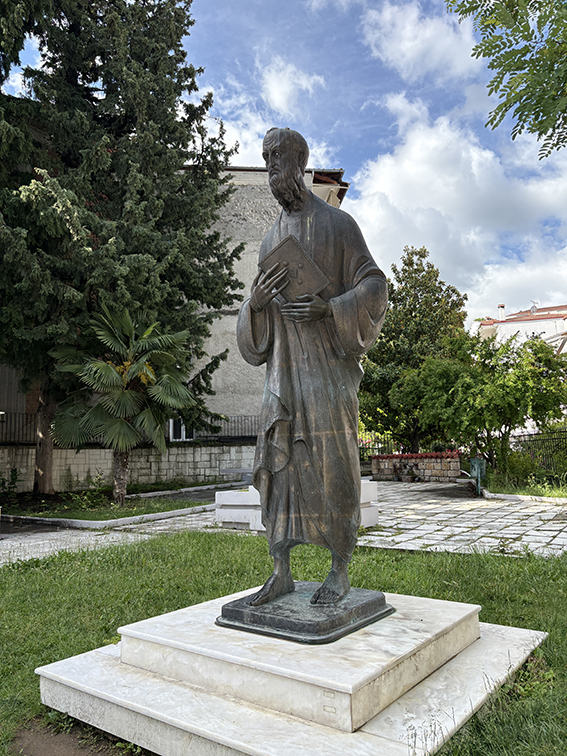
Veria itself has a rich history, once a thriving city in the Roman and Byzantine eras, known for its intellectual culture and vibrant Jewish community. It was a significant center of early Christian preaching, where Paul found a more receptive audience than in Thessalonica. The Bereans’ willingness to examine the Scriptures for themselves set them apart as a community deeply committed to seeking the truth.
After arriving in Veria, we gathered for Mass at the very spot where Paul is believed to have preached nearly 2,000 years ago. It was a deeply moving experience, standing in the footsteps of the Apostle who, despite countless hardships, remained steadfast in his mission to spread the Good News.
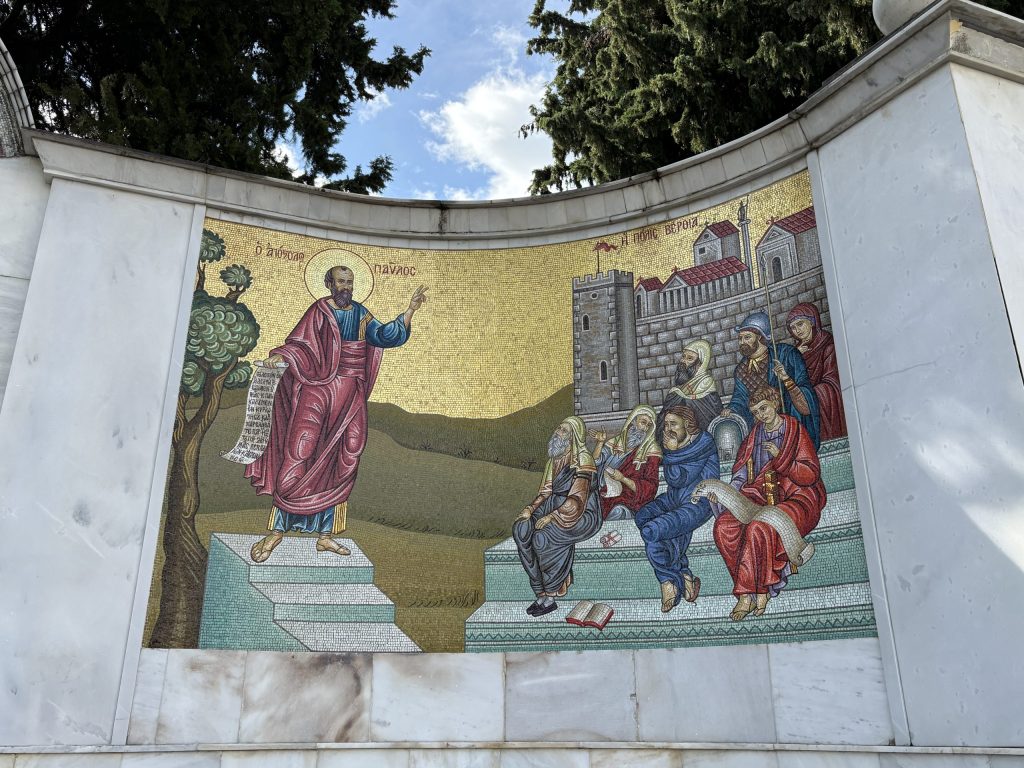
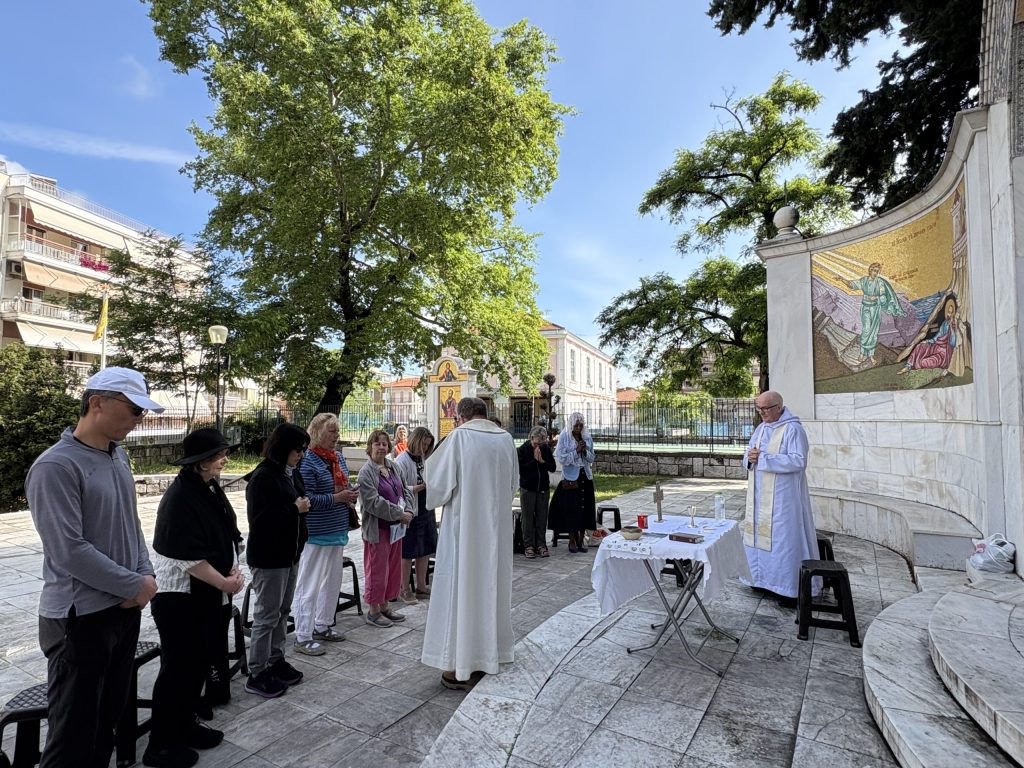
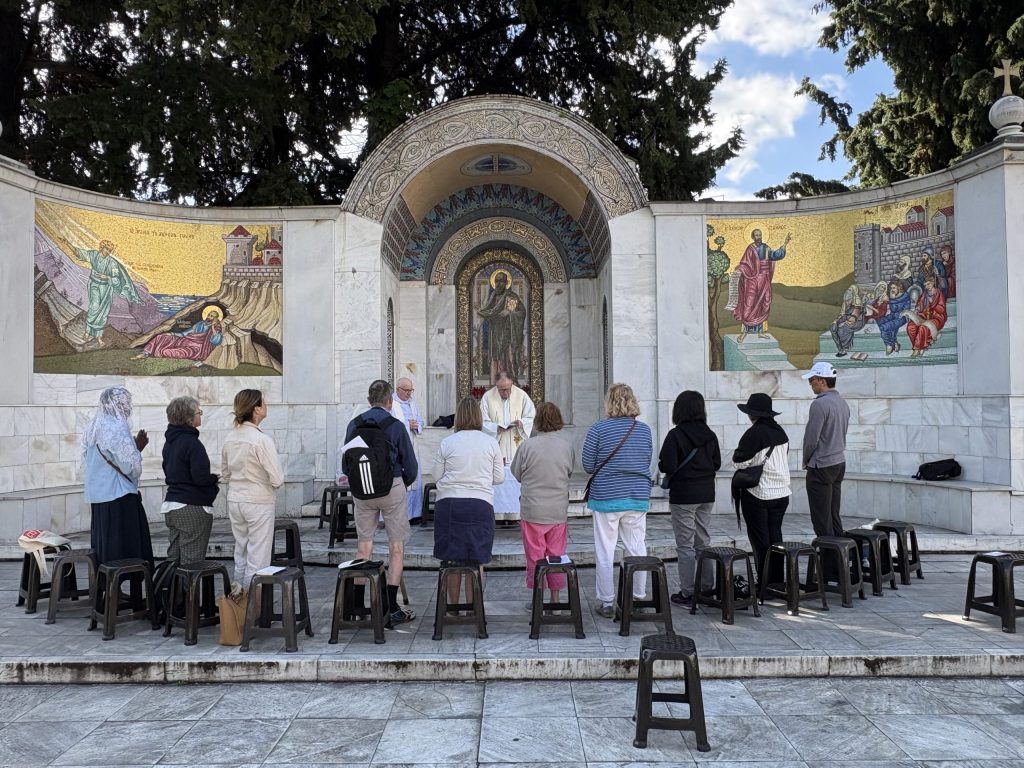
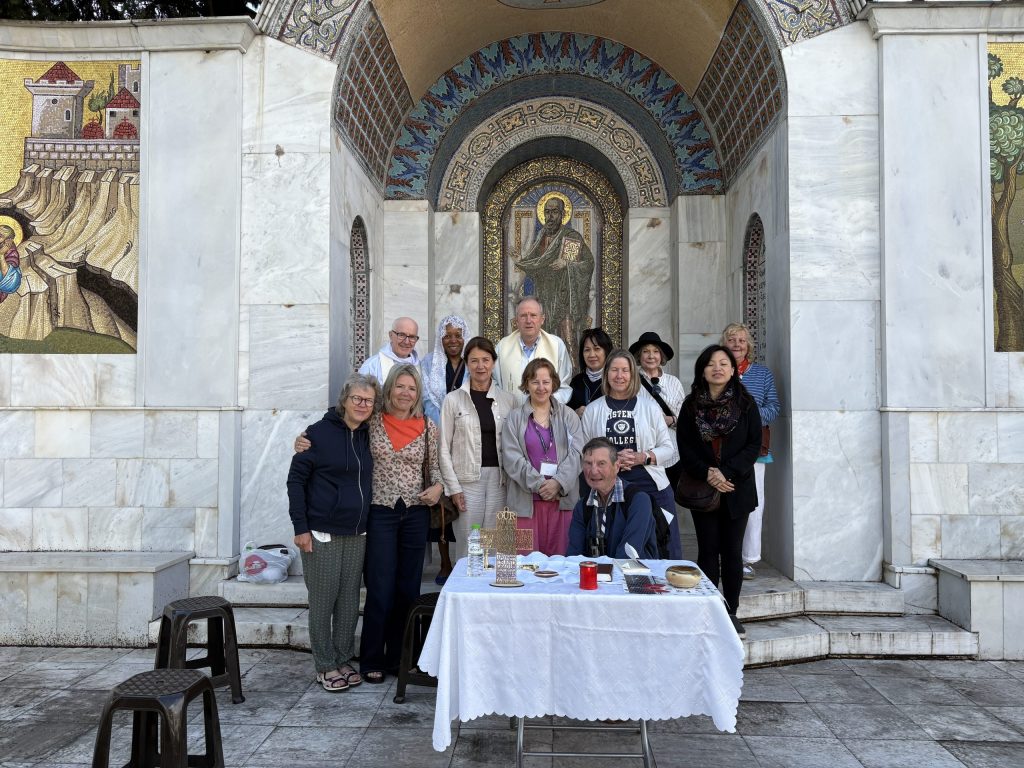
Following Mass, we visited the local synagogue, a beautifully maintained space that bears witness to the enduring Jewish presence in this ancient city. We were particularly impressed by the dedication and care of the woman who maintains the synagogue, a powerful reminder of the importance of preserving sacred spaces and traditions. This synagogue, though small, stands as a testament to the resilience of faith and the power of sacred memory.
After a reflective walk through the winding streets of Veria, with its ancient walls and narrow stone pathways, we returned to our bus, our hearts full of gratitude for the opportunity to walk in the footsteps of Saint Paul and the early believers.
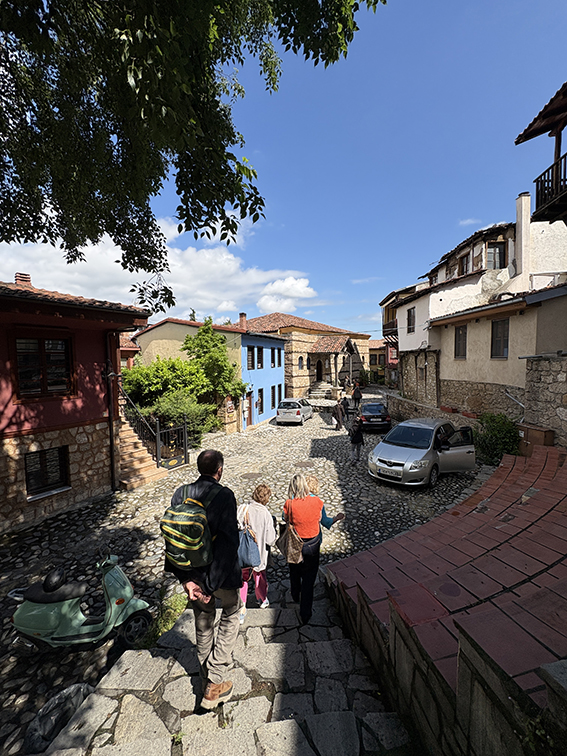
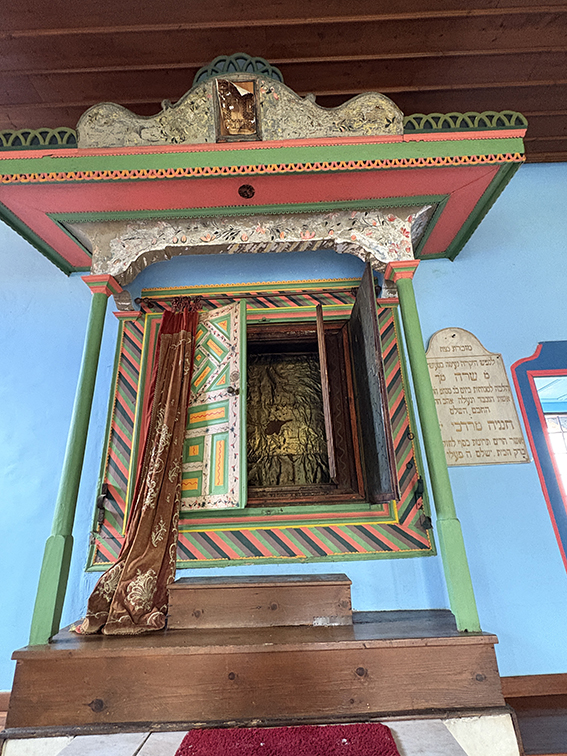
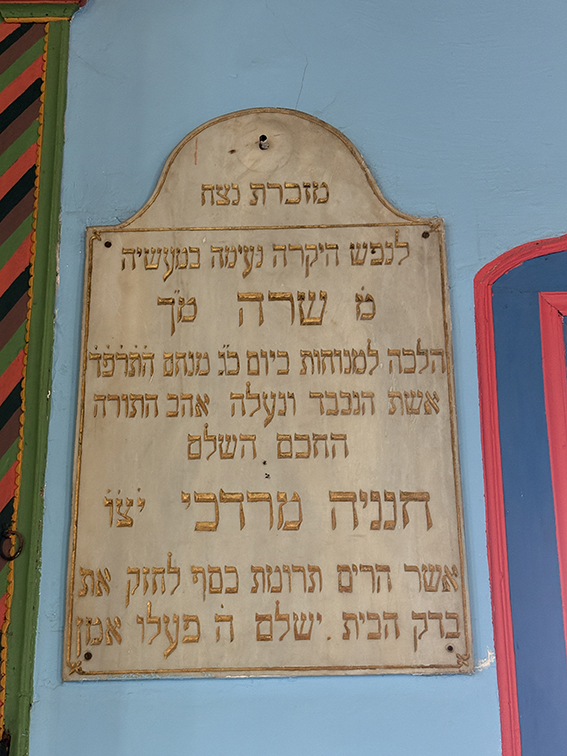
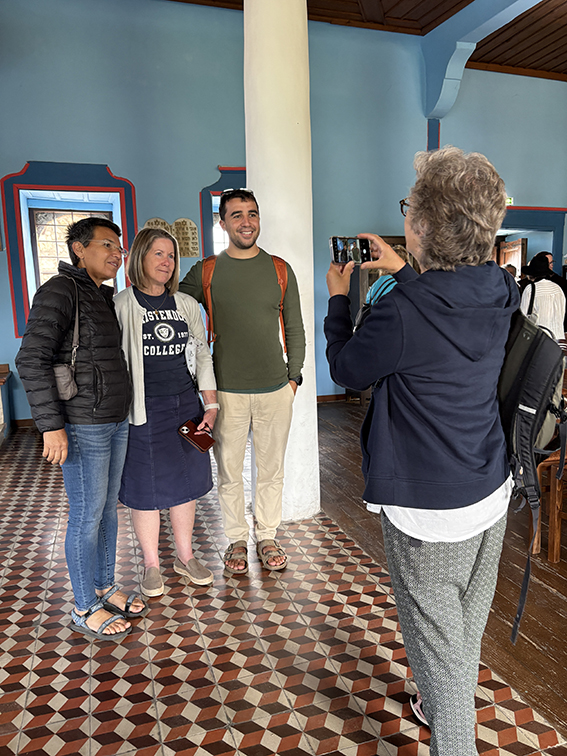
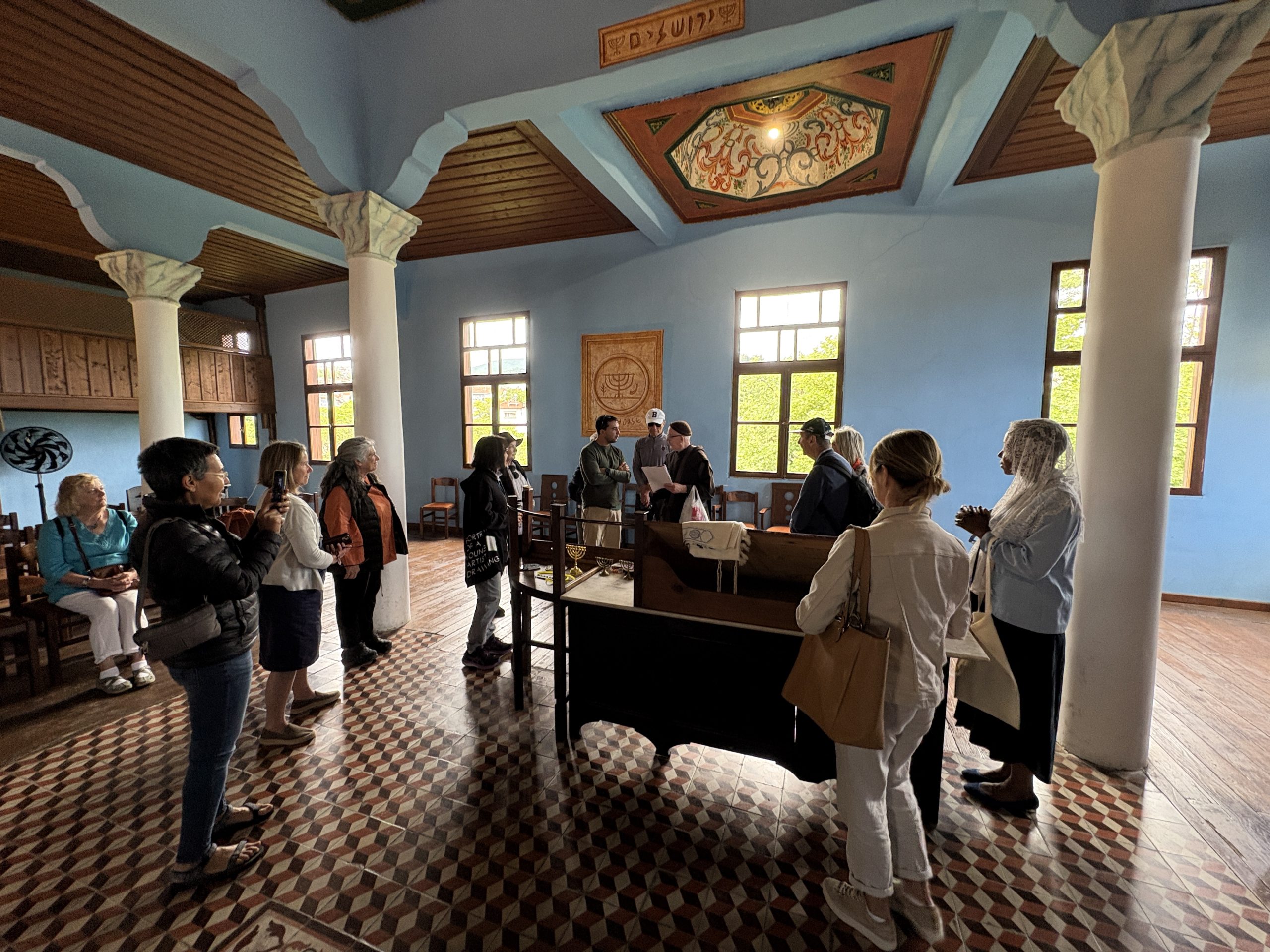
On the drive back to Thessaloniki, Father Matthew shared a final reflection, quoting St. Thérèse of Lisieux, who wrote about her own discovery of vocation in the heart of the Church. He reminded us that, like the early Christians in Veria, each of us is called to respond to God’s call with courage and faith, finding our own unique place in the unfolding story of the Church.
As we listened to these words, the road ahead seemed to stretch further, a reminder that our own journeys of faith, like Paul’s, continue to unfold with every step we take.
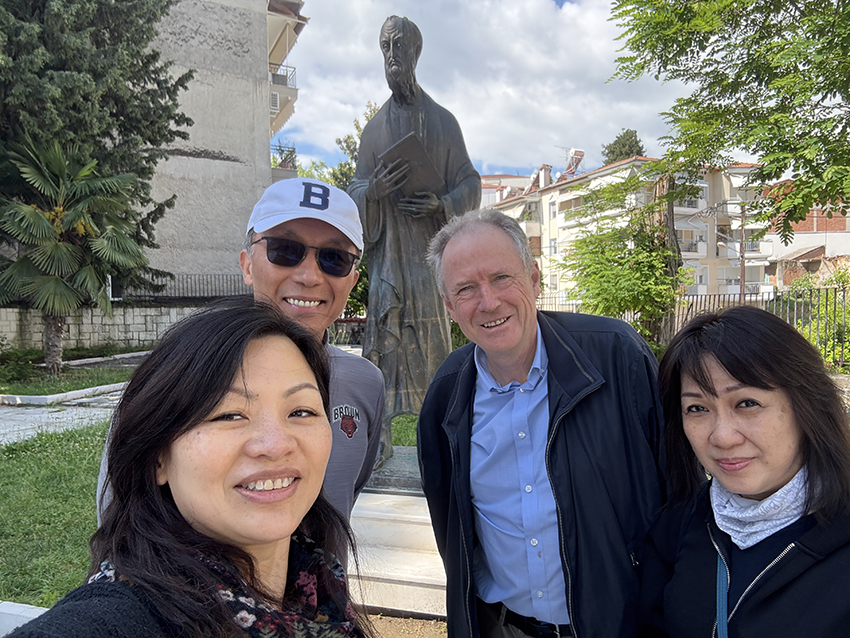
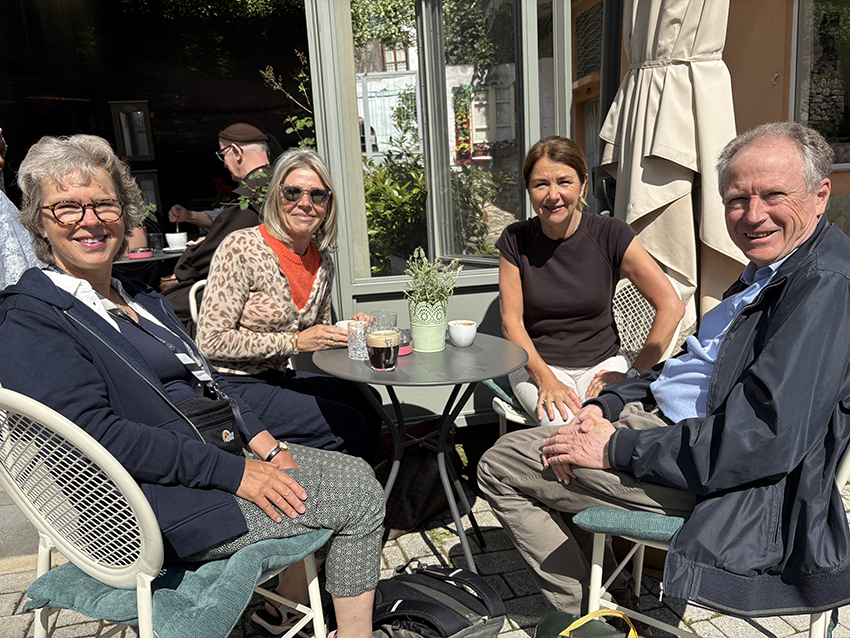
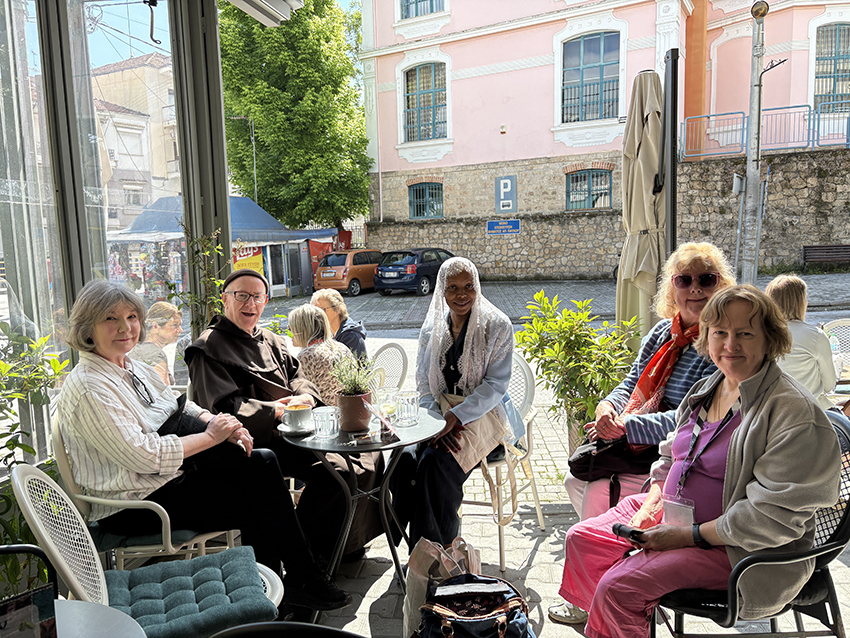
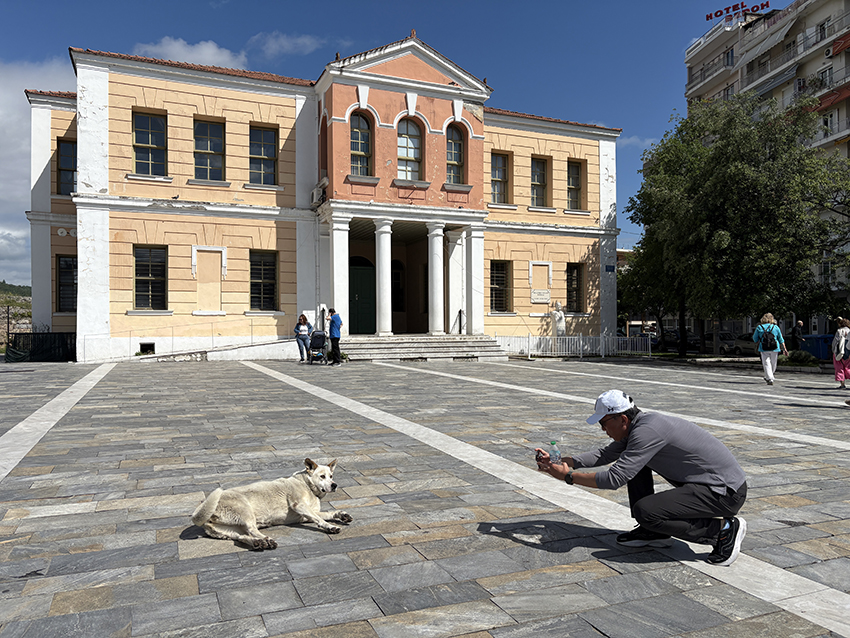
As we made our way back to Thessaloniki, we reflected on the courage of the Bereans, the unity of the early Church, and the call to love that lies at the heart of every Christian vocation. May we, like the Bereans, continue to search the Scriptures with open hearts and minds, always seeking to deepen our relationship with Christ as we walk this path together.
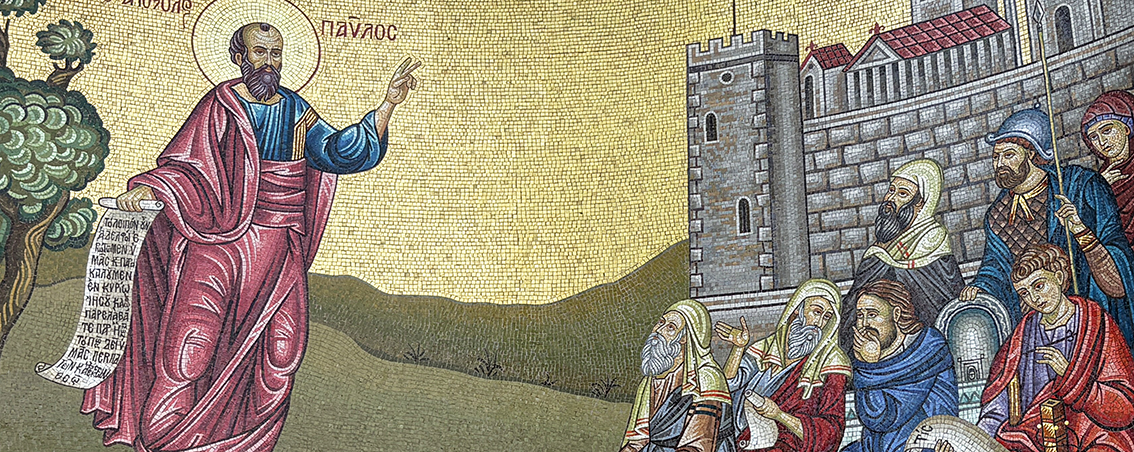
Are you thinking about making a pilgrimage?
The Carmelite Friars of Boars Hill, Oxford have unrivalled experience of taking pilgrims on the spiritual journey of a lifetime. You can travel with them across Spain to visit the sites associated with the lives and spirituality of St John of the Cross and Teresa of Ávila, explore the France of Thérèse of Lisieux or walk through Greece in the footsteps of St Paul. All pilgrimages are carefully curated and you’ll be travelling in the company of the Carmelite friars and well known speakers and experts on the locations being visited.
Find out more about our upcoming pilgrimages for 2025 and 2026 …

